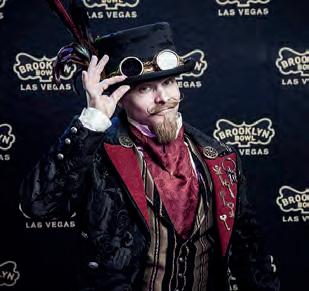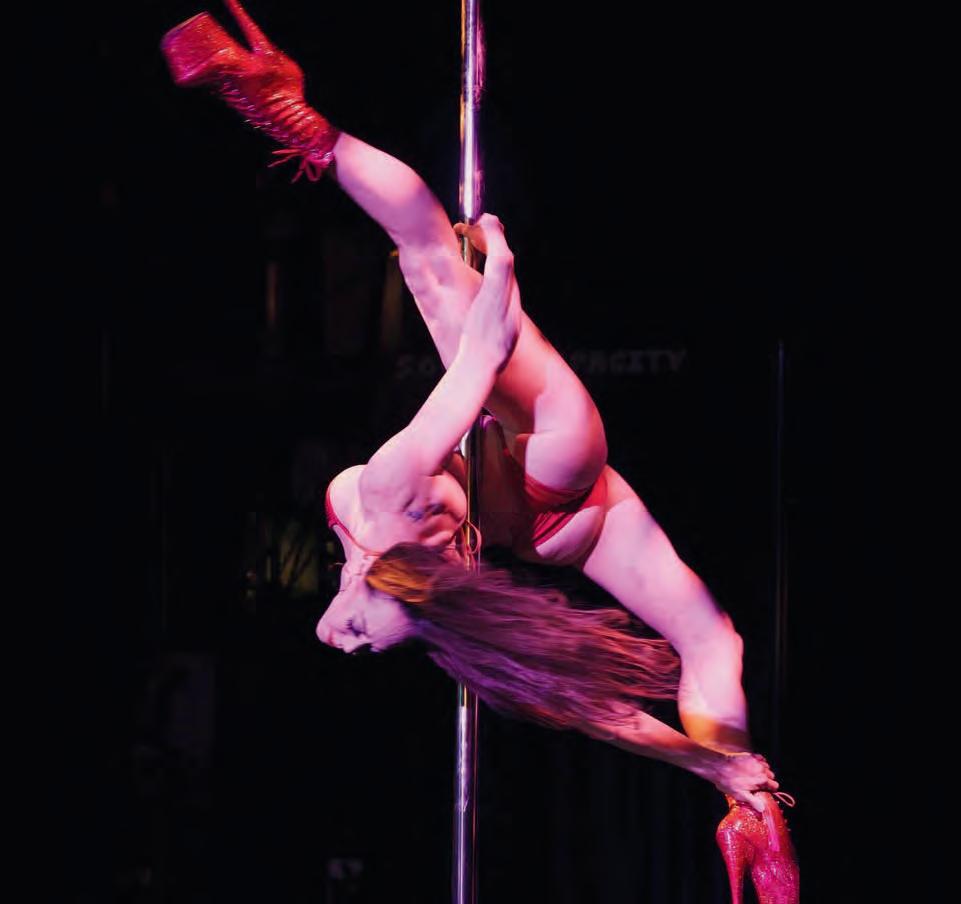












by John Ferrannini
Political novice Daniel Lurie – an heir to the Levi Strauss fortune and former nonprofit executive – is leading in the race to become San Francisco mayor, besting incumbent London Breed by 56.3% to 43.6% in the 14th round of ranked-choice voting, according to preliminary returns from the San Francisco Department of Elections.
A Lurie victory would represent a political earthquake in the city; the 47-year-old scion of one of the city’s most prominent families ran as an outsider after decades of Room 200 at City
See page 8 >>
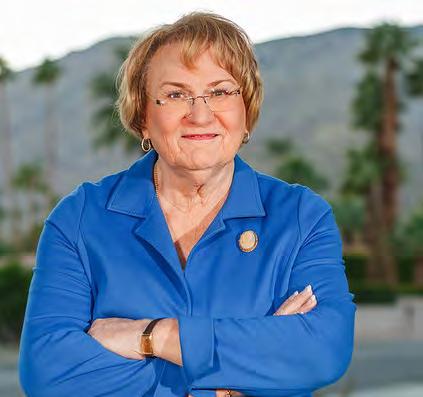
by Matthew S. Bajko
While gay former West Sacramento mayor Christopher Cabaldon will be the first Filipino American in the state Senate, Palm Springs City Councilmember Lisa Middleton is waiting to see if she will join him in Sacramento as the first transgender member of the Legislature. They are among the 20 LGBTQ candidates who ran Tuesday for state legislative seats across California. According to the early returns, Middleton finished strong in her race for the 19th Senate District spanning Riverside and San Bernardino counties against state Senator Rosilicie Ochoa Bogh (R-Yucaipa). After being statistically tied at 50% Tuesday night, Middleton fell into second place behind Ochoa Bogh with nearly 47% of the vote as of early Wednesday morning, according to the returns posted by the Secretary of State’s office.
by Lisa Keen
Amajority of U.S. voters set aside all evidence of Republican nominee Donald Trump’s mental decline, adoration of dictators, criminal convictions, and hostility to the U.S. Constitution and gave him a decisive victory November 5 over Democratic presidential nominee Vice President Kamala Harris.
Mother Jones magazine called the 2024 presidential election the “most anti-LGBTQ election in decades.” And, on Wednesday morning, many post-election political analysts were crediting much of Trump’s victory to the campaign’s $21 million investment in an antitransgender ad. The ad ran more than 30,000 times – especially during televised football games – and apparently helped win over young men of all races. In a campaign heavily divided by gender – including the possibility that the U.S. would elect its first woman president – the ad apparently helped secure the popular vote and the necessary electoral votes in closely contested swing states.
And much of the post-election commentary criticized the Harris campaign’s failure to produce any response to the ad.
Fox News reporter Bret Baier tried to get some traction for the anti-LGBTQ tactic during his interview with Harris October 16.
“Are you still in support of using taxpayer dollars to help prison inmates or detained illegal aliens to transition to another gender?” asked Baier.

“I will follow the law, and it’s a law that Donald Trump actually followed,” noted Harris. The ads, and various speeches by Trump at rallies, derided the “transgender insanity” in schools. Trump repeatedly characterized Harris’ position as supporting the use of taxpayer funds for “sex-change operations” and transgender girls and women playing in girls and women’s sports.
The ad did not, of course, explain that a
1976 U.S. Supreme Court ruling held that the Eighth Amendment requires federal prisons to make “medically necessary” treatment available to prisoners. The American Medical Association and others have deemed “mental health care, hormone therapy, and genderaffirming surgical procedures [as] medically necessary….”
See page 10 >>
by Matthew S. Bajko
San Francisco is poised to see a record number of LGBTQ people serving together on the San Francisco Board of Supervisors.
With an out candidate leading in the race for the open District 9 seat, there will be a bloc of four out supervisors come 2025.
Based on the current ranked-choice tally in the contest to succeed termed out Supervisor Hillary Ronen, progressive Jackie Fielder has taken the lead with 57% of the vote after six rounds. In second place with roughly 43% is Trevor Chandler, a gay moderate.
A victory by Fielder, who is queer, will make her the first Native American elected supervisor in the city. Her win will also mark the first time in 28 years that an out female has been elected to a seat on the San Francisco Board of Supervisors. Over that time an out woman was appointed to fill a vacancy but went on to lose her election to keep the seat.
Coming in third is Roberto Hernandez, a straight moderate, while queer progressive Stephen Torres trails in fourth. Ronen had dual endorsed Fielder and Torres in the contest to represent the Mission district, Bernal Heights, and a slice of the Mission Dolores neighborhood adjacent to the Castro LGBTQ district.
It was a stunning defeat for Hernandez, known as the mayor of the Mission and expected to do much better in the race. But Chandler had secured the number one endorsement from the San Francisco Democratic Party, which gave Hernandez its number two nod, and won the backing of many fellow moderate leaders in the city.
For more than a year Chandler and Fielder had largely focused on each other, attacking one another on social media and in emailed missives to supporters. They each had also aired several different campaign ads over the final weeks of the campaign.
There are currently three gay supervisors, which itself marks a record for the number of
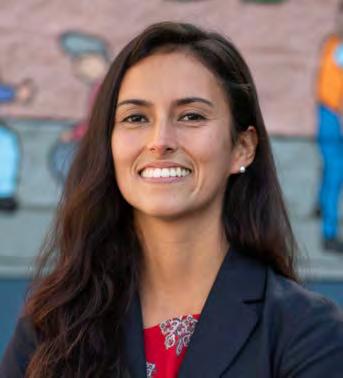
out men serving together on the board. In the District 5 supervisor race gay political newcomer Scotty Jacobs had hoped to make it a quartet.
Alas, he landed in third after three rounds with close to 13% behind first place finisher Bilal Mahmood, a moderate who received 53% of the vote after four rounds of ranked-choice voting. In second place is the incumbent, progressive Supervisor Dean Preston, with almost 47%, while Autumn Looijen landed in fourth place with nearly 10%.
A second gay candidate, Black Republican Allen Jones, landed in fifth with 1.6%. The race to represent the Haight, Western Addition, and Tenderloin neighborhoods had largely been seen as a contest between Preston and Mahmood.
Two other incumbent supervisors were also seeking second terms Tuesday. In the hotly contested race for the District 1 seat covering the Richmond District, progressive Supervisor Connie Chan is also on the cusp of being defeated. After four rounds Chan is in second with 49.91%
of the vote, while her main challenger, moderate Marjan Philhour, is in first place with 50.09%.
In the West Portal-centered District 7 race, Supervisor Myrna Melgar has taken first place after three rounds with 51.59% of the vote. In second with 48.41% is flower shop owner Matt Boschetto, while coming in third is Stephen MartinPinto, vice president of the city’s Veterans Affairs Commission.
The other two contests were for open seats due to the incumbents being termed out. Leading the race to succeed District 3 Supervisor Aaron Peskin, the current board president who ran for mayor Tuesday, is Danny Sauter with 56.07% of the vote after five rounds of ranked choice results. In second at 43.93% is Sharon Lai.
In the District 11 race in the city’s Excelsior District to succeed Supervisor Ahsha Safaí, who also vied to become mayor, Michael Lai is standing atop the pack with 50.92% of the vote after six rounds of ranked-choice tallies. In second is Chyanne Chen with 49.08%.
In addition to the winners of Tuesday’s supervisor races joining the board in 2025 there will also be a new holder of the District 2 seat covering the Marina and Pacific Heights neighborhoods. Incumbent Supervisor Catherine Stefani will be stepping down due to her election Tuesday to the city’s District 19 Assembly seat.
Stefani easily won the legislative seat with 63% of the vote. With new members of the state Legislature to be sworn in on December 2, it will be up to Mayor London Breed to appoint someone to fill the vacancy.
The person will serve through June 2026 when a special election will be held on the primary ballot that year to serve out the remainder of Stefani’s term through January 2027. The winner will have a leg up in the race that fall for a full four-year term.
Should a special election need to be called prior to the primary ballot, then the race to serve out the rest of Stefani’s term would be conjoined with it. t
by John Ferrannini
E
ver since the 2022 school board recalls – and especially considering the abandoned effort to close schools earlier this year – the elections for seats on the San Francisco Board of Education have taken on added weight.
As of November 6, the top four vote-getters in that race are all newcomers. Jaime Huling, Parag Gupta, Supryia Ray, and John Jersin were leading, according to preliminary returns from the San Francisco Department of Elections. Huling, Gupta, and Jersin ran as a slate.
On X, Huling, a bi married mom of two children, one of whom is a second grader in the district, stated,
“Thank you to everyone who supported our campaign for San Francisco Board of Education! We have big challenges ahead, but I will always fight to protect our immigrant communities, trans kids, freedom of speech, and funding for education. We will not fail our kids.”
Current Board President Matt Alexander, the only incumbent seeking reelection, was trailing Jersin by several thousand votes.
It was the opposite in the race for four seats on the San Francisco Community College District Board of Trustees, where three incumbents were reelected, along with one newcomer, preliminary returns showed.
As of November 6, the top four
vote-getters in that race are Heather McCarty, Aliya Chisti, Alan Wong, and Luis Zamora, according to preliminary returns. Chisti, Wong, and Zamora are all incumbents.
Zamora, a gay man who was already a candidate for the college board, was appointed by Mayor London Breed this summer after another trustee resigned. McCarty, who identifies as queer, will add out representation to the body alongside Zamora and Trustee Vick Chung, who is nonbinary and wasn’t up for election this year.
None of the candidates returned requests for comment. t
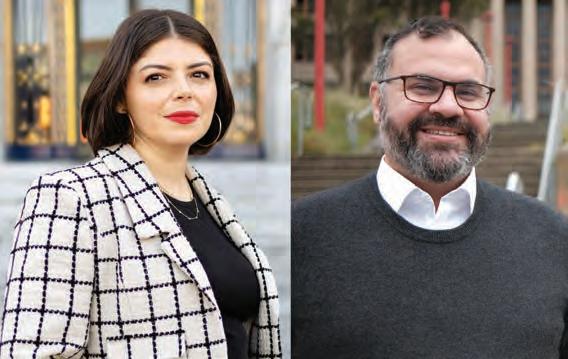
by Matthew S. Bajko
E l Cerrito is on the cusp of becoming the first Bay Area city with an LGBTQ majority on its City
Council. It is one of several cities in the region set to welcome new out councilmembers following Tuesday’s election. The historic outcome in El Cerri-
to will be due to the elections of out parents Rebecca Saltzman and William Ktsanes to two of the three City Council seats elected citywide that were up for grabs on the November
5 ballot. Saltzman, a lesbian on the board that oversees regional transit agency BART, is currently in second place with 27.71% of the vote, behind incumbent Lisa Motoyama,


according to the unofficial returns. Ktsanes, a gay dad, is in third place with 21.87% of the vote. Should their leads hold over the two other candidates who ran, Ktsanes and Saltzman will join out City Councilmembers Gabe Quinto and Carolyn Wysinger on the five-person council.
In nearby Berkeley, gay District 2 City Councilmember Terry Taplin secured a second four-year term. He took first place in his race with nearly 70% of the vote.
In the contest for the council’s open District 6 seat, gay married dad Brent Blackaby took first place with 63% of the vote. The political newcomer is well ahead of bisexual East Bay Municipal Utility District board member Andy Katz, who netted roughly 37% of the vote and will remain in his EBMUD Ward 4 seat through 2026. (Gay former Alameda city councilmember Jim Oddie appears set to join him in the EBMUD Ward 5 seat, as he is in first place in that race with 40% of the vote.)
Blackaby will join Taplin and District 7 City Councilmember Cecilia Lunaparra, the first queer woman of color on the council. She won a special election to fill a vacancy in the spring and will need to seek a full four-year term in 2026.
In Oakland, queer at-large City Council candidate Rowena Brown sits in first place after nine rounds of ranked-choice tabulations with 54.58% of the vote, ahead of former Oakland police chief LeRonne L. Armstrong. She is seeking to succeed lesbian incumbent Rebecca Kaplan, who opted not to seek reelection and endorsed Brown.
In the race for the District 3 seat, gay former City Hall mobility staffer Warren Logan is trailing behind the incumbent Carroll Fife, who is in first place with 56.78% of the vote after five rounds of ranked-choice tallies.
And in the race for the District 5 council seat, transgender parent Erin Armstrong, a senior policy adviser to Alameda County Supervisor Nate Miley, is falling well behind the incumbent, City Councilmember Noel Gallo. He is in first place with 64% of the vote after two rounds of ranked-choice tallies, with Armstrong in second at almost 36%.
Gay Pinole City Councilmember Devin T. Murphy appears headed to winning a second term. With two council seats up for grabs, Murphy placed second in the race with 38.59% of the vote, giving him a sizable lead Wednesday morning over the third-place finisher.
In Concord, gay married Concord Parks and Open Space Commissioner Pablo Benavente is in a razor-sharp race for the District 4







by Cynthia Laird
G
ay Emeryville City Councilmember John Bauters is poised to break through an East Bay political pink glass ceiling, as he’s leading for a seat on the Alameda County Board of Supervisors. If successful, his opponent will likely become acting mayor of Oakland after voters are poised to recall Sheng Thao.
Alameda County District Attorney Pamela Pride was also recalled by voters Tuesday, according to early returns.
Bauters, running in District 5, would be the first LGBTQ person to serve on the Alameda County board. Previous candidates had fall -
en short, meaning one of the most diverse counties in the state had no LGBTQ representation on its Board of Supervisors. The District 5 seat became open when outgoing Supervisor Keith Carson opted not to seek reelection. Carson endorsed Bauters, as did Equality California, the statewide LGBTQ rights organization.
Preliminary returns from the Alameda County Registrar of Voters had Bauters in first place with 53.42% of the vote. His opponent, Oakland City Council President Nikki Fortunato Bas, had 46.58%. The results are the opposite of the March 5 primary, when Bas led Bauters by about 13 points.
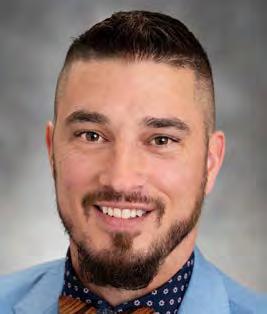
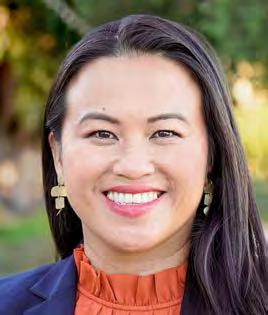
Bauters had no comment when reached Wednesday morning. There are still potentially 100,000 ballots to count in the supervisor race, he noted.
In the recall of Thao, early returns showed 65.19% voting to remove her from office while 34.81% were opposed. Those numbers are expected to hold up, meaning that Bas, as council president, would become acting mayor until a special election is held.
Thao, elected in 2022, faced a formidable task to beat back the recall.
Many residents blamed her for an increase in crime. She was also criticized for firing popular police chief LaRonne Armstrong following an outside investigation that found he had mishandled two officer misconduct cases. (Armstrong ran for the at-large seat on the City Council but was trailing in early returns.) Her office missed an opportunity for a state retail theft grant that voters were also critical of.

for program information.
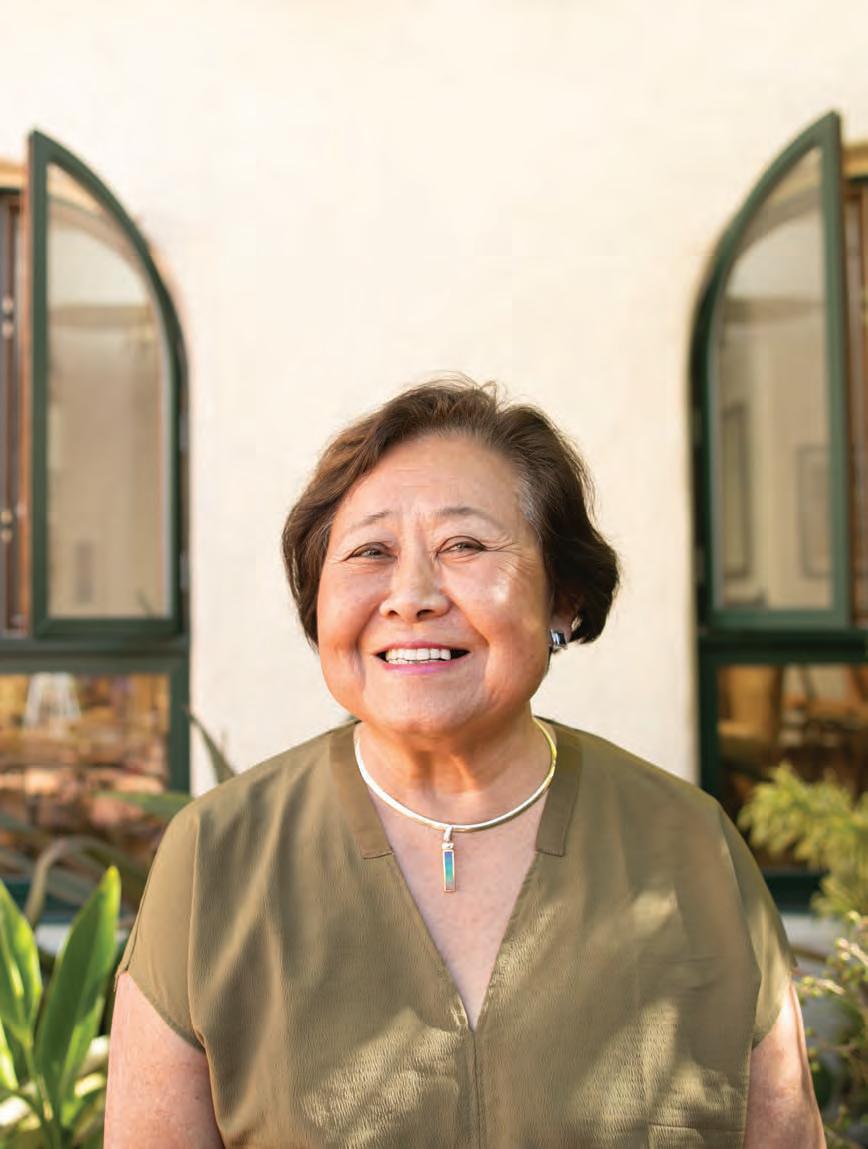

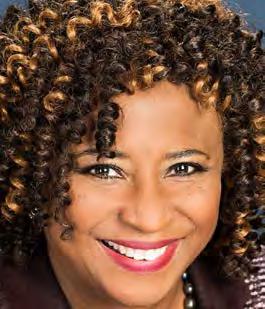
Thao did not respond to a request for comment.
DA race
Alameda County District Attorney Pamela Price also appeared headed to being removed from office. Elected in 2022 as a progressive prosecutor, county residents became fed up with some of her policies, as did crime victims.
Early returns showed voters backing the recall 64.79% to 35.21%.
With the result expected to be certified, the Alameda County Board of Supervisors will need to select a replacement for Price until a special election is held.
Price did not respond to a request for comment. t
John Ferrannini
San Francisco appears to have reelected its district attorney, city attorney, and sheriff, according to preliminary returns from the San Francisco Department of Elections.
All three faced token opposition. In the DA’s race, incumbent Brooke Jenkins – who took over after former District Attorney Chesa Boudin was famously ousted in a 2022 recall – is leading challenger Ryan Khojasteh 67.7% to 32.2%, according to preliminary returns.
Khojasteh was hired by Boudin in 2020 and fired by Jenkins upon her appointment by San Francisco Mayor London Breed. He works at the office of Alameda County District Attorney Pamela Price, who was recalled by voters Tuesday.
Neither returned requests for comment.
Sitting City Attorney David Chiu is besting attorney and football coach Richard Woon 88.8% to 11.1%, according to preliminary returns. Chiu stated he will be on the front lines of standing up to president-elect Donald Trump.
“My office and our city had dozens of legal matters with the first Trump administration,” Chiu stated. “Given Donald Trump’s disdain for the rule of law and the plans laid out in Project 2025, we will be preparing ourselves to once again stand up for all San Franciscans. I will use every legal tool at our disposal to defend our city and our rights under the Constitution and our country’s laws.”
Chiu also thanked voters for the opportunity to continue on the job.
“I’m truly grateful to the people of San Francisco for allowing me to continue to serve as City Attorney,” he stated. “I’m proud of the work my office has done to hold special interests accountable and tackle our city’s ongoing challenges, and look forward to doing whatever we can to uplift our residents and move our city forward.”
Meanwhile, in the race for sheriff, incumbent Paul Miyamoto handily de-
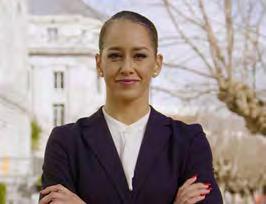
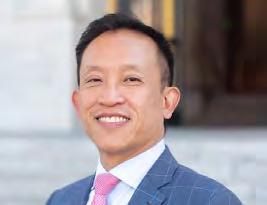
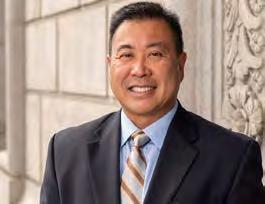
feated rival Michael Juan, a former Marine and UCSF police officer, according to preliminary returns. Miyamoto was not endorsed by the San Francisco Deputy Sheriffs’ Association, saying he had not “implemented effective strategies” for the department. But that didn’t seem to matter to voters when they casted their November 5 ballots, with Miyamoto leading 80.6% to 19.3%.
didn’t return a request for comment. t
by Lisa Keen
The U.S. Senate’s first – and soon its only – LGBTQ member appears to have won reelection, but Senator Tammy Baldwin (D-Wisconsin) will now find herself as part of the minority party. Republicans won enough seats Tuesday to take majority control over the Senate.
As of the Bay Area Reporter’s press deadline Wednesday, Republicans were leading in the race to keep their majority control over the U.S. House of Representatives. But in the House, about 64 seats – many in California – have yet to be decided.
Baldwin, a lesbian, was one of two LGBTQ candidates for the Senate Tuesday. The other was gay Republican hotelier Curtis Bashaw in New Jersey. With 99% of the vote counted in Wisconsin Wednesday morning, Baldwin appears to have won reelection to a third term, with 49.4% of the vote. (Trump won 49.7% of Wisconsin’s vote to earn its 10 electoral votes.) Baldwin declared victory Wednesday morning, thanking her supporters in an email for helping her maintain her seat.
“The votes have been counted and I’m incredibly honored the people of Wisconsin have elected me to continue serving our state in the United States Senate,” wrote Baldwin.
In the Garden State, with 94% of votes counted, Bashaw had won 44.6%, but his Democratic opponent, Congressmember Andy Kim, won 53.1%.
Bashaw described himself as a “prochoice married gay man.”
Baldwin’s race to retain the Senate seat from Wisconsin was one of several closely contested battles over Senate seats. In 2012 and in 2018, she won by 10 points. This year, with the endorsements of the state’s three largest newspapers, she won with only 0.9%.
Baldwin’s opponent, businessman Eric Hovde, spent millions of dollars to air ads against Baldwin, and about a third of those ads underscored that Baldwin has a “girlfriend” who rakes in big money from her investment job. The U.S. Senate currently includes three LGBTQ members: Baldwin, Kyrsten Sinema (IndependentArizona), and Laphonza Butler (D-California). But the latter two – Sinema and Butler – did not run for reelection.
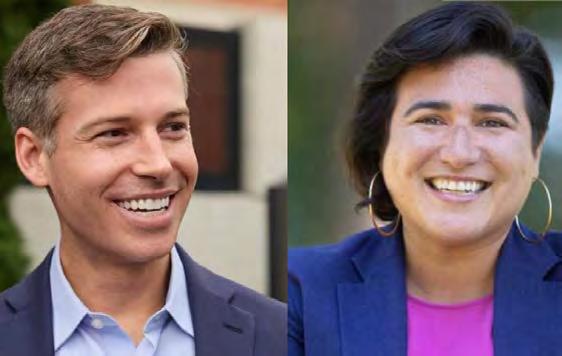
The Senate’s current split of 51 to 49 is now flipped to 52 Republicans and 42 Democrats.
Before the election, Sinema switched from Democrat to independent and announced her retirement; but, in her state of Arizona, it appears a Democrat, Ruben Gallego, will keep the seat.
Democratic incumbents Jon Tester of Montana and Sherrod Brown of Ohio both lost their reelection bids. Republicans ran anti-transgender ads against both candidates. One group, called Citizens for Sanity, put up billboards saying such things as, “Help Charlie become Charlotte. Puberty blockers are a civil right,” “Protect Pregnant Men from Climate Discrimination,” and “Vote to keep our borders, jails, and bathrooms open. Vote progressive.”
Longtime Republican anti-LGBTQ nemesis Senator Ted Cruz of Texas ran ads claiming his Democratic opponent, Congressmember Colin Allred, “voted to allow boys in girls’ locker rooms.” The fine print on the ad indicated Allred voted for the Equality Act in 2021.
The Equality Act seeks to amend the Civil Rights Act of 1964 to add sexual orientation and gender identity to the categories of discrimination prohibited by federal law. It has stalled in Congress since the House passed it in 2021 and has not been voted on in the Senate.
At deadline, major media outlets had not yet called four U.S. House races with LGBTQ Democratic candidates. Three of those are in California: In the 41st district in the southern part of the state, challenger Will Rollins trails the Republican incumbent by one percentage point, with 69% of votes counted. In the 39th, incumbent Mark Takano appears to have a 12-point lead over his Republican challenger but only 54% of the vote has been counted. And in District 16, just south of San Francisco, Assemblymember Evan Low (D-Cupertino) is trailing the former San Jose mayor Sam Liccardo by 20 points, but only 53% of votes have been counted.
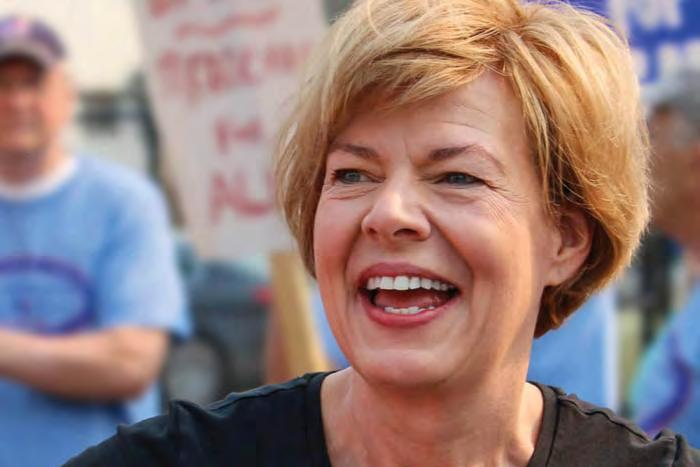
In Washington state, newcomer Emily Randall, a former Oakland resident who is queer and a state senator, declared victory Tuesday night, doubling the number of West Coast states that will have LGBTQ representation in Congress, as the B.A.R. first reported online. Set to become the first out Latina in Congress, she has a 14-point lead over the Republican opponent, with 63% of votes counted.
Sarah McBride (D-Delaware) became Congress’ first openly transgender candidate. McBride, who previously was an official at the Human Rights Campaign, earned the support and endorsement of the Gay & Lesbian Victory Fund. LPAC, which promotes out women and gender-nonconforming candidates, endorsed McBride, who is currently a state senator.
“In addition to blazing a trail as our country’s first ever out transgender congressperson, she is a leader in championing health care, reproductive rights, environmental justice, racial justice and gun safety,” said LPAC Executive Director Janelle Perez. “We are lucky to have her in Congress, fighting for all of us.”
Openly LGBTQ members of the LGBTQ Congressional Caucus (straight allies can also join) in the 2023-24 session totaled 12: three senators and nine members of the House. If Rollins wins to serve with Baldwin, McBride, and Randall, then the U.S. Senate will have one LGBTQ member and the House 13 out members.
In addition to Baldwin, the caucus will include Democratic LGBTQ incumbents Becca Balint of Vermont, Eric Sorensen of Illinois, Sharice Davids of Kansas, Chris Pappas of New Hampshire, Angie Craig of Minnesota, Ritchie Torres of New York, Mark Pocan of Wisconsin, Mark Takano and Robert Garcia of California; and first termers McBride of Delaware, Julie Johnson of Texas, Randall of Washington, and, possibly Rollins of California.
LGBTQ House candidates headed for defeat include Mondaire Jones in New York, and along with Low in California, progressives Jennifer Tran, Ph.D., David Kim, and Derek Marshall. t

Volume 54, Number 45
November 7-13, 2024 www.ebar.com
PUBLISHER
Michael M. Yamashita
Thomas E. Horn, Publisher Emeritus (2013)
Publisher (2003 – 2013)
Bob Ross, Founder (1971 – 2003)
NEWS EDITOR
Cynthia Laird
ARTS & NIGHTLIFE EDITOR
Jim Provenzano
ASSISTANT EDITORS
Matthew S. Bajko • John Ferrannini
CONTRIBUTING WRITERS
Christopher J. Beale • Robert Brokl
Brian Bromberger • Victoria A. Brownworth
Philip Campbell • Heather Cassell
Michael Flanagan •Jim Gladstone
Liz Highleyman • Brandon Judell • Lisa Keen
Philip Mayard • Laura Moreno
David-Elijah Nahmod • J.L. Odom • Paul Parish
Tim Pfaff • Jim Piechota • Adam Sandel
Jason Serinus • Gregg Shapiro
Gwendolyn Smith • Charlie Wagner
Ed Walsh • Cornelius Washington • Sura Wood
ART DIRECTION
Max Leger
PRODUCTION/DESIGN
Ernesto Sopprani
PHOTOGRAPHERS
Jane Philomen Cleland
Rick Gerharter • Gooch
Jose A. Guzman-Colon • Rudy K. Lawidjaja
Georg Lester • Rich Stadtmiller Christopher Robledo • Fred Rowe
Shot in the City • Steven Underhill • Bill Wilson
ILLUSTRATORS & CARTOONISTS
Christine Smith
VICE PRESIDENT OF ADVERTISING
Scott Wazlowski – 415.829.8937
NATIONAL ADVERTISING REPRESENTATIVE
Rivendell Media – 212.242.6863
LEGAL COUNSEL
Paul H. Melbostad, Esq.


Bay area reporter
44 Gough Street, Suite 302 San Francisco, CA 94103
415.861.5019 • www.ebar.com
A division of BAR Media, Inc. © 2024
President: Michael M. Yamashita
Director: Scott Wazlowski
News Editor • news@ebar.com
Arts Editor • arts@ebar.com
Out & About listings • jim@ebar.com
Advertising • scott@ebar.com
Letters • letters@ebar.com
Published weekly. Bay Area Reporter reserves the right to edit or reject any advertisement which the publisher believes is in poor taste or which advertises illegal items which might result in legal action against Bay Area Reporter. Ads will not be rejected solely on the basis of politics, philosophy, religion, race, age, or sexual orientation.
Advertising rates available upon request. Our list of subscribers and advertisers is confidential and is not sold. The sexual orientation of advertisers, photographers, and writers published herein is neither inferred nor implied. We are not responsible for unsolicited manuscripts or artwork.
The shock is still all too real. Americans elected a convicted felon as their next president. Of course, the new president-elect, Donald Trump, is the same former president who unleashed chaos the last time he was in office. Get ready for more of the same, as this time there will be little to stop him. He’s already packed the U.S. Supreme Court with a 6-3 Trump-friendly supermajority. On Tuesday, he received another gift when the U.S. Senate flipped to Republican control. Critically, that will result in a flood of Trump-nominated conservative federal judges being confirmed. LGBTQ legal advocates once relied on federal courts – and still do in many instances – to right wrongs and maintain or expand our rights; that will be sharply curtailed once the new administration takes over in January.
Despite the election of Sarah McBride (D-Delaware), the country’s first transgender member of Congress; the reelection of lesbian U.S. Senator Tammy Baldwin (D-Wisconsin); and the victories of several other out members of the House of Representatives, the next four years portend poorly for LGBTQ people, especially those who are transgender, nonbinary, or immigrants. (Control of the House of Representatives is still unknown as there are many close contests to be determined.) We expect the next Trump administration to forcefully fight against genderaffirming care for trans youth, trans women playing sports on women’s teams, and the like. Trump may even reinstate the ban on trans military service members that he announced in 2017 and which President Joe Biden rescinded in 2021.
It is a given that Trump will eviscerate the Department of Justice. Not only will the criminal inquiries into him cease, we see a DOJ weaponized against Trump’s enemies – real or perceived – and ineffective in protecting the LGBTQ and other minority communities.

cratic nominee, looks unlikely to win any of the seven swing states. The polls foretold tight races in those states, but so far, they have all broken for Trump. (Results were not yet called for Michigan, Arizona, and Nevada at press time, but Trump was leading in all three.)

As for the noxious Project 2025 – buckle up. Trump talked on the campaign trail about handing over health duties to anti-vaxxer Robert F. Kennedy Jr. and establishing an “efficiency” department (whatever that is) under anti-LGBTQ billionaire Elon Musk. The new administration is likely to unveil many policies from the Project 2025 playbook.
sidizing single-motherhood, disincentivizing work, and penalizing marriage,’ [it states].”
Project 2025 is in denial over societal changes that have occurred over the last several decades. The authors are scared of the progress the country has made in civil rights, women’s rights, and LGBTQ rights, we noted at the time. Now that Trump has won, those threats are real.
And we noted that under the chapter about the Health and Human Services Agency, there’s this: “Radical actors inside and outside government are promoting harmful identity politics that replaces biological sex with subjective notions of ‘gender identity’ and bases a person’s worth on his or her race, sex, or other identities. This destructive dogma, under the guise of ‘equity,’ threatens American’s [sic] fundamental liberties as well as the health and well-being of children and adults alike.”
What went so horribly wrong for the Democrats will be the topic of much analysis – indeed, some of that has already started. Latino voters broke for Trump in astounding numbers, even as he campaigned promising to deport undocumented people, many of whom are Latino. We’re sure to hear about other failings that contributed to Harris’ defeat. One thing against her from the start was that she was tied to Biden, who’s unpopular among many voters despite a productive administration that did so much for so many. But voters only saw inflation and higher prices and bolted to Trump. We’ll see how they feel when he implements his tariff plans on imported goods, other countries retaliate by imposing their own tariffs, and companies raise prices for consumers.
Unlike in the 2016 and 2020 elections, Trump is on pace to actually win the popular vote this year, which seemed unthinkable prior to Tuesday. Once he won Pennsylvania the writing was on the wall; Wisconsin put him over the top. In fact, Vice President Kamala Harris, the Demo-
As we wrote back in July: “To actually read Project 2025 is to be transported in time back to the 1950s, when men worked outside the home, women tended to the home, and the heterosexual family unit was the gold standard. Never mind those pesky gays. Today, stable and flourishing families should be promoted, Project 2025 states, but that doesn’t refer to same-sex families. ‘Unfortunately, family policies and programs under President Biden’s [Health and Human Services] are fraught with agenda items focusing on LGBTQ+ equity, sub-
In the end, it will likely be deep blue states like California that provide a safe haven for LGBTQ people. The Golden State has some of the strongest protections in the country, and on Tuesday, voters added another – enshrining the right to marry as fundamental by jettisoning the old Proposition 8 language from the state constitution that proclaimed marriage is only between a man and a woman.
Trump as the next president is frightening on many levels. But as a community, we must stand strong and repudiate any actions he takes that seek to desecrate our rights. t
by Olga Zilberbourg
In 2016, when my son was 2 years old, my childhood friend and her partner came to visit him. They still lived in St. Petersburg, Russia, where I grew up, and coming to San Francisco was an exciting pilgrimage for them as a lesbian couple. Together, we went for a stroll in the Castro, and they were delighted to see baby strollers pushed by queer couples. At the time, despite Russia’s increasingly homophobic laws, my friend and her partner had not yet lost hope in having a child of their own one day.
In 2019, when my husband and I were looking for schools for our son, I considered it a source of pride that we might send him to a public school called the Harvey Milk Civil Rights Academy. It was named after the San Francisco supervisor who became the first openly gay person elected to public office in California in 1977 and who was slain a year later along with then-mayor George Moscone. While most people in San Francisco celebrated recently won marriage equality rights, I was watching how in my home country, civil protections for lesbian, gay, and trans people were crumbling. I wanted my son to grow up in a society that believed all forms of love and identities were to be celebrated.
My husband and I put the Harvey Milk school at the top of our lottery list. We tried and tried again through all rounds of lottery to get in due to high demand for the school. Ultimately, our persistence paid off, and we were offered a spot – a week after school started.


In part, our luck was due to a calamity. It was 2020, the middle of the COVID pandemic, and a number of parents had left the district. My son started kindergarten on Zoom.
Though my husband and I struggled with the logistics of Zoom school, we were secretly happy about it for our son. At 6 years old, he was not yet ready for kindergarten. He struggled with independent tasks; he had terrible separation anxiety; and when faced with new people he froze up. Later, we would learn that he was on the autism spectrum; at the time, we were just happy that he had a chance to meet his new teacher and classmates online before he was expected at bell time in person.
To get acquainted with the school building, I took up our librarian’s offer to pick up books and drove my son to Harvey Milk school. Suspecting that I was about to leave him, my son refused to climb the rainbow stairs to the library, and instead watched from below as I exchanged books through the door at the top. He internalized one thing: the stairs were rainbow, and the school had a lot of rainbow flags on it.
“Rainbow is my favorite color,” he declared. And now, every time we drive to Harvey Milk, he counts the rainbow flags that we pass on the way – until he loses count.
Still, when the school reopened in April 2021, dropping him off was not easy. He clung to his dad at the school’s gate, and it took extra care and attention from his teacher and paraprofessional to get him to go through the doors. But go through the doors he did and, just one year later, we saw him standing in front of a large classroom full of people, participating in the Oratorical Contest organized by the San Francisco Alliance of Black School Educators and his first-grade teachers. “Don’t wallow in the mire! / Treating all people fairly should be your desire,” he recited as emphatically as he could.
The poetry that he learned to recite is a part of the unique civil rights curriculum that the Harvey Milk school has developed over decades. Kids learn about the historical injustices that have formed this country, and they learn about systemic racism today. Through this foundational experience and through Harvey Milk’s message of love and acceptance, kids learn not only academic subjects but also to relate to the experiences of others and to use their bodies and their voices for the betterment of their community. They showed off their skills just last month, making signs and giving speeches to save their school that had been threatened with closure by the San Francisco Unified School District. The students, parents, educators, and community members all came together to demonstrate how unique and necessary this school is. As a result of our campaign, the district reversed its decision to close schools in the coming year, yet Harvey Milk Civil Rights Academy is far from secure. To thrive, we need continued support from the district, from the community, and from the families of prospective students, who I hope will be encouraged to send their kids to our school.
Witnessing my son’s growth, I have seen how a kid on the autism spectrum can thrive in a small school by internalizing a civil rights curriculum and, through it, learning to see past his own personal experience to appreciate the struggles and lived experiences of others.
My friends in Russia have been forced to give up their dream of getting married and raising a child together, as new Russian homophobic and transphobic laws defined the “LGBT movement” as “terrorist and extremist.” Here in the U.S., protecting civil rights must include raising kids who are aware of the past and ongoing injustices, and are prepared to do their part to improve life for everyone. This is what Harvey Milk Civil Rights Academy does. When our community is in trouble, we organize and we march. t
by Matthew S. Bajko
Running unopposed on Tuesday’s ballot, gay San Francisco Treasurer-Tax Collector José Cisneros cakewalked into a historic sixth term in his citywide municipal elected position. Already the longest-serving gay Latino elected official in the U.S., he is set to become the Bay Area’s longest-serving LGBTQ elected official in the same position.
As no other out candidate is expected to be elected to one of the city’s six additional municipal offices, Cisneros will remain for the time being the lone LGBTQ leader among the septet. The two gay men who qualified for this year’s mayoral race were never seen as having a path to win.
“As always, I am very excited to have the opportunity to serve the residents of the city and county of San Francisco and do the important work of the treasurer’s office for four more years,” Cisneros, 68, told the Bay Area Reporter.
Already the longest-serving out person of color in elected office, having been first appointed to his post two decades ago, Cisneros could extend his run another eight years, at least, as his position is not term-limited. He has not ruled out seeking a seventh term in 2028, potentially extending his time in office through 2032.
“Again, I have not made any decisions and I will reassess what I will do four years from now,” said Cisneros, who is married to San Francisco Human Rights Commissioner Mark Kelleher
Should he serve all four years of his new term, to which he will be sworn into in early January, Cisneros will reach a historic 24-year tenure as the collector of the city’s taxes and watchdog of its treasury. Former mayor Gavin Newsom now the state’s governor, first appointed him to the post in 2004 to fill a vacancy.

for a full four-year term in 2005; it was the only time Cisneros has been challenged for the citywide post. With his normal four-year terms twice changed due to when his position would appear on the city’s ballot, Cisneros only served two years after his 2013 victory before seeking a full four-year term on the 2015 fall ballot.

Voters in 2022 approved a ballot measure moving his and several other citywide races to being held during presidential election years, thus Cisneros is currently finishing up a five-year term. He told the B.A.R. he will be spending election night at home watching the returns come in and rooting for his former elected municipal colleague, Vice President Kamala Harris, to be elected the country’s first female president.
“It is hard to think of a more dedicated and effective public servant than José Cisneros,” said Tom Temprano managing director of external affairs for statewide LGBTQ civil rights organization Equality California.
A gay San Francisco resident and former City Hall legislative aide who has long worked with Cisneros, Temprano told the B.A.R. one key to his political success has been his ability to stay out of the fray of the city’s rough-and-tumble politics and focus on his job at hand.
“The fact that he is making this history for the LGBTQ community, and for LGBTQ people of color in particular, is remarkable in a place like San Francisco where so often voters and residents have negative experiences with their elected officials and city government,” said Temprano, himself a former elected member of the city’s college board who was pilloried for his oversight decisions. “Yet, in the case of José as our treasurer and tax collector, a position one would expect would engender a lot of frustration from voters, he has dedicated himself to being above the petty politics of City Hall and focused on running an effective department that meets the needs of the taxpayers of San Francisco.”
Cisneros won a competitive race
He served alongside the Democratic presidential nominee when Harris was the city’s district attorney between 2004 and early 2011.
“I am excited to put it behind us and see how it turns out,” Cisneros said of the 2024 presidential race.
He will also be watching to see if the local ballot measure Proposition M passes. Cisneros was among a wide array of city leaders who endorsed it and appeared at a joint rally for it last week. It will change the city’s business tax levies, particularly in a manner beneficial to smaller, locally owned companies.
“I think it will be a benefit to the city and to the taxpayers if it passes,” said Cisneros, noting that if Prop M fails to garner more than 50% of the vote it needs to pass, then “small businesses will see a significant increase in taxes owed starting in January 2025 and another increase beginning in January 2026.”
Road to history
In 2019, 15 years into his tenure, Cisneros took the record for being San Francisco’s longest-serving openly gay elected official in the same post. Gay former supervisors Tom Ammiano and the late Harry Britt both served on the board for 14 years.
The current record-holder for the Bay Area region is gay former Berkeley City Councilmember Kriss
City Councilmember Thom Bogue. His victory will make Cabaldon the first out person to represent the Bay Area’s more northern counties.
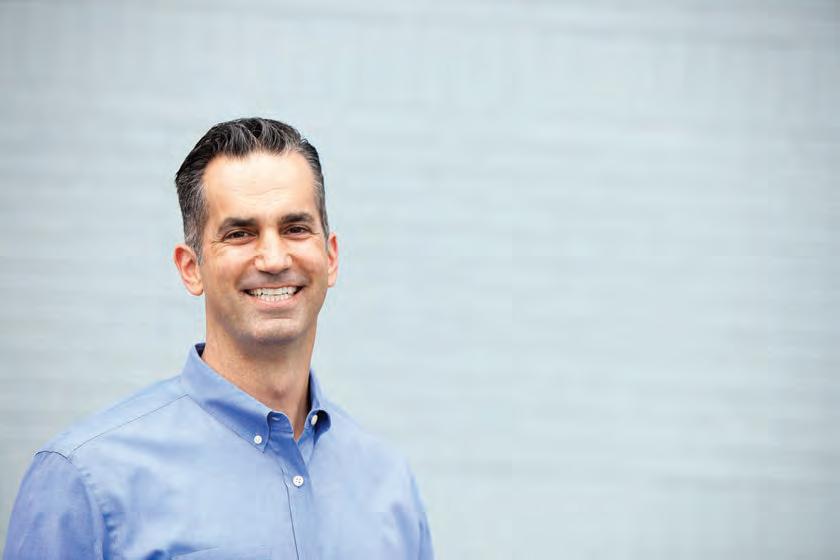
Worthington, who served for 22 years in his position before opting not to seek reelection in 2018. He was Berkeley’s first gay elected official.
As the B.A.R.’s Political Notebook column reported in August, the region’s longest-serving out female elected leader in the same post is lesbian Oakland At-Large City Councilmember Rebecca Kaplan. First elected to her citywide seat in 2008, she opted not to run again this year and will depart after serving in it for 16 years.
Kaplan has one of the longest time spans as a local elected official, at 23 years, having spent seven years as an elected member of the AC Transit District Board of Directors. The agency provides bus service in Alameda and Contra Costa counties.
The record-holder, at 26 years, in the Bay Area is gay former Santa Clara County supervisor and San Jose councilmember Ken Yeager, who first won election to a community college board seat in 1992. The South Bay’s first out elected official, Yeager was termed off the countywide board in 2018.
As for Cisneros, he remains the first and only LGBTQ man to serve in one of San Francisco’s seven citywide municipal elected positions. (His lesbian predecessor, Susan Leal, was the first and, to date, only LGBTQ woman to do so.)
“Of course, I never imagined the future and didn’t spend a lot of time trying to. But as I have been here the last 20 years, I have really come to love the work the office does, and my and my colleagues’ ability to do an impor tant job for the city and county of San Francisco,” said Cisneros when asked if he ever foresaw his record-breaking time in office. “I am excited to be able to continue that.”
He still has years to go before be coming the longest-serving LGBTQ elected official in the country. Lesbian former Minnesota House of Repre sentatives member Karen J. Clark appears to hold that title, having served in her legislative chamber for 38 years until stepping down in January 2019.




“I am not sure I am going to beat her,” Cisneros had quipped to the B.A.R. in August when it became official that he would be the only candidate once again to stand for treasurertax collector this year. t
The Bay Area Reporter can help members of the LGBTQ community in the San Francisco Bay Area reach more than 120,000 local residents each week with their display of Obituary* and In Memoriam messages. RATES: $21.20 per column inch (black & white) $27.75 per column inch (full color)
Bay Area Reporter can help members of the community reach more than 120,000 LGBT area residents each with their display of Obituary* & In Memoriam
counties is Berkeley Mayor Jesse Arreguín. He currently has 60% of the vote. In the race for the open Senate District 9 seat that covers much of Contra Costa County and a portion of southern Alameda County, San Ramon City Councilmember Marisol Rubio is in second with 44.8% of the vote. Rubio, a mom of an adult daughter who survived terminal brain cancer as an infant, identifies as gender-nonconforming, demisexual, and biromantic. << Middleton From page 1
Running in a decidedly Democratic district with the endorsement of termed out state Senator Bill Dodd (D-Napa), Cabaldon was expected to easily win his November 5 contest for the sprawling Senate District 3 seat that includes portions of Contra Costa, Solano, Sonoma, and Napa counties as well as Yolo and Sacramento counties. Cabaldon currently has 61% of the vote, putting him in first place ahead of his Republican opponent, Dixon
The two out female Senate candidates running for seats that also include parts of Contra Costa County are currently trailing in second place. AC Transit Board member Jovanka Beckles, a former Richmond City Council member who identifies as queer and lesbian, has almost 40% of the vote in the open Senate District 7 seat race. In first place to represent the district that spans Alameda and Contra Costa
DEADLINES: Friday 12 noon for space reservations Monday 12 noon for copy & images
TO PLACE: Call 415 829 8937 or email us at advertising@ebar.com
$21.20 per column inch (black $29.15
*Non-display Obituaries of 200-words or less are FREE to place. Please email obituary@ebar.com for more information.

by John Ferrannini
Californians overwhelmingly voted Tuesday to overturn Proposition 8 – striking language banning same-sex marriage from the state constitution. Proposition 3 passed 61.1% to 38.9%, according to preliminary election returns from the California Secretary of State’s office.
Prior to Election Day, the California Constitution stated, “Only marriage between a man and a woman is valid or recognized in California” – a remnant of the anti-marriage-equality Prop 8 passed by voters in 2008. The passage of Prop 3 removes this outdated language and replaces it with a provision that establishes the right to marry as a fundamental right.
Governor Gavin Newsom, who kickstarted the marriage equality movement when he was mayor of San Francisco, backed Prop 3.
Equality California, the statewide LGBTQ rights organization, praised the results.
“This vote is a tremendous victory for fairness, justice, and love,” stated Tony Hoang, a gay man who is executive director of EQCA. “We are grateful to all those who voted to reaffirm the freedom to marry and protect loving couples and families across California who deserve to have their marriages protected and respected under the law.
“With the current makeup of the Supreme Court, there is no guarantee that the precedent set by Obergefell almost 10 years ago will hold,” Hoang stated, referring to the 2015 court decision that legalized same-sex marriage nationwide.
“If the Supreme Court can overturn almost 50 years of precedent – as they did with Roe v. Wade – we cannot assume it will uphold a decision protecting marriage equality for same-sex couples not even a decade old.”
In fact, it was Justice Clarence Thomas’ concurring opinion in the 2022 case that overturned Roe that called for the court to possibly review other precedents, like the Obergefell v. Hodges
SF mayor From page 1
Hall being occupied by Willie L. Brown Jr. and his allies and protégés.
“Our strongest opposition was not City Hall insiders – it was cynicism itself, that gnawing sense that maybe it has to be this way, that we can’t turn this city around with a new approach,” Lurie said at his election night party in the Mission neighborhood November 5.
Lurie said that he had 263 meet and
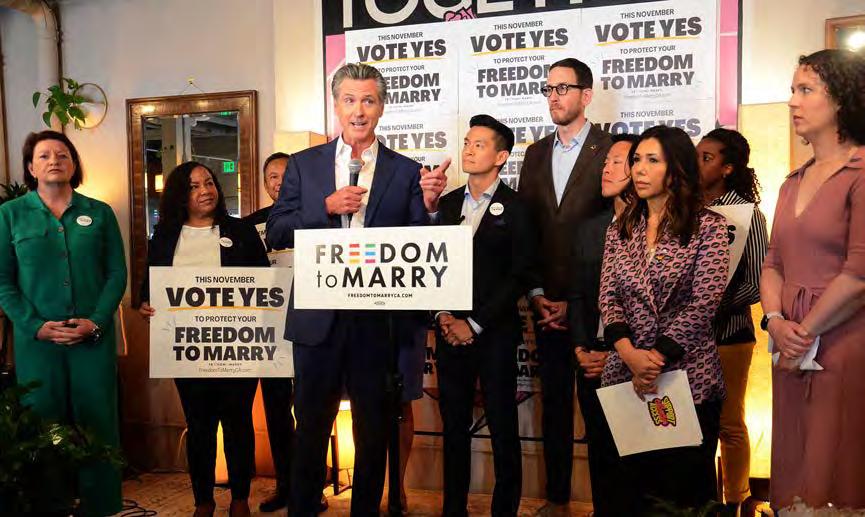
ruling that legalized same-sex marriage.
“This vote is a declaration of love and acceptance,” Hoang added. “Equality
California was proud to be a member of the executive committee of the Yes on 3 campaign and work with incredible partners. Our thanks to Assemblymember Evan Low, Senator Scott Wiener, and the Legislative LGBTQ+ Caucus, who provided strong leadership from the outset, and to all our legislative and community partners and allies who came together to help safeguard marriage equality for all Californians.”
The Yes on 3 campaign was markedly different from the contentious Prop 8 campaign 16 years ago. Prop 3 garnered considerable early support and was not the divisive battle of the earlier campaign, partly as a result of the growing acceptance of same-sex marriage in California.
“This victory affirms that the equal opportunity to marry, regardless of gender or race, is a California value,” stated Bamby Salcedo, a trans woman who is president and CEO of the TransLatin@
greet events with voters, participated in over 150 merchant walks, and knocked on 140,000 doors in the course of the campaign, which he said was “powered by our love for this city that we all call home.”
“But hope alone is not enough; strong values are not enough,” he continued. “They have to be drivers of actions and results.”
Lurie cautioned that “turning around this city is not going to happen overnight.”
“We have extremely difficult challenges ahead,” he said. “We know this. But
Coalition. “This strong wave of support sends a clear message that Californians stand firmly with the LGBTQ+ community, especially as we face an increase in threats to our equality nationally.”
The decision to enshrine equal marriage rights in the state’s Constitution comes as Republican former president Donald Trump will begin a second term in the Oval Office next year with a Republican-led U.S. Senate that will allow him to appoint more conservative judges to the federal bench. LGBTQ advocates had decided to add this year’s Prop 3 to the November 5 ballot in case a conservative Supreme Court throws out the right to same-sex marriage. Prop 3 also protects the right to interracial marriages.
Other propositions
Golden State voters also voted to make key changes to another proposition they passed years ago, Proposition 47, with this year’s Proposition 36, which is passing 70% to 29%, according to preliminary election returns.
here’s another truth – our opportunities and advantages are more powerful.”
Lurie also won the most first-choices of any candidate counted – 28% compared to 24.5% for Breed. As other candidates were eliminated, the field narrowed to Breed and Lurie.
Breed’s campaign didn’t return multiple requests for comment by press time November 6; however, the San Francisco Standard reports he said it was “disgusting” that “someone could take their personal wealth and buy this office,” re-
Prop 36 was placed on the ballot amid the state’s crises of organized retail theft and drug overdose deaths. It makes a number of changes to 2014’s Proposition 47. For example, Prop 36 makes the theft of items worth $950 or less a felony if a person has two or more past convictions for theft crimes. Prop 47 generally made those crimes misdemeanors.
The measure would also allow people who possess illegal drugs to be charged with a “treatment-mandated felony” instead of a misdemeanor. Those who possess drugs - such as fentanyl, heroin, methamphetamine, and cocaine - and have two past convictions for drug crimes would have charges dismissed if they complete mental health or drug treatment. But those who don’t finish treatment could serve up to three years in state prison. The changes undo some of the punishment reductions in Prop 47, according to the nonpartisan legislative analyst.
Gay San Francisco District 6 Supervisor Matt Dorsey, who is in recovery and
ferring to Lurie contributing $8 million of his own fortune to his campaign.
Former interim Mayor Mark Farrell sought to return to his old job – he’d held the position briefly in 2018 after the death of mayor Ed Lee. Breed had been acting mayor until she was removed by the Board of Supervisors in the lead up to a June 2018 special election, in which she defeated gay former District 8 supervisor, assemblymember and state senator Mark Leno. Farrell’s campaign didn’t return a request for comment, but
has been open about his past drug use, supported Prop 36. He told the Bay Area Reporter that he’s “grateful that Prop 36 passed so convincingly.”
“I think the treatment-mandated drug felonies it makes possible will enable us to make hundreds of lifesaving interventions in San Francisco,” Dorsey stated to the B.A.R. “The challenge for us now, as local policymakers, will be to expand drug treatment to meet the need – and that’ll be a major priority of mine moving forward.”
Proposition 33, which would have repealed the Costa-Hawkins Rental Housing Act (limiting local jurisdictions’ ability to enact rent control), was failing 61% to 38%, according to preliminary returns. The San Francisco Board of Supervisors had passed legislation expanding rent control to units built before 1994 (the current cut-off year is 1979) if Prop 33 had passed.
Voters also appear to have rejected Proposition 5, which allows local bonds for affordable housing and public infrastructure with only 55% voter approval instead of the current 66.67%. It’s failing 55% to 44%, early returns showed. Proposition 6, which bans involuntary servitude for prisoners, was also failing 54% to 45%; and Proposition 32, which raises the minimum wage, was failing 52% to 48%, according to preliminary returns
On the other hand, three propositions look like they will be approved, including Proposition 2, a school facilities bond, which is passing 56% to 43%; Proposition 34, which prevents medical dollars being spent on political campaigns and is passing 51% to 48%; and Proposition 35, which provides permanent funding for Medi-Cal Health Care Services and is passing 66%-33%, according to preliminary returns. Prop 34 was dubbed the “revenge” initiative by the Los Angeles-based AIDS Healthcare Foundation, as its authors specifically aimed it at the nonprofit. AHF has spent millions of dollars bankrolling the rent control initiatives. The failure of Prop 33 was the third time voters decided on the issue. t
he conceded, according to KRON-TV. Farrell had been dinged with one of the largest ethics fines in the city’s history just one day before the election –$108,000 over reimbursements from a committee in support of Proposition D, which would eliminate some city boards and commissions. The ballot measure, whose TV ads in support heavily showcased Farrell, was losing as of Wednesday morning.
See page 10 >>


by John Ferrannini
San Francisco voters are on the cusp of passing the $390 Proposition B infrastructure bond. The measure would give City Clinic a new home and allocate $25 million toward the revitalization of Harvey Milk Plaza.
Proposition K, a measure that would close the westside’s Upper Great Highway to vehicle traffic, is also on track to pass.
The elections department announced Wednesday that there are about 150,000 remaining ballots to count.
Prop B required two-thirds of the vote to pass. It garnered 71.1% to 28.8%, according to preliminary returns from the San Francisco Department of Elections.
“We are very encouraged by the Prop B results so far and are continuing to track progress,” Brian Springfield, a gay man who is the executive director of the Friends of Harvey Milk Plaza, stated to the Bay Area Reporter.
City Council seat. As of Wednesday morning, he was trailing in second place by four votes with 34.91% of the vote. He had come up short when he first ran for a council seat in 2016.
Next door in Walnut Creek, queer transportation commissioner Laura Patch landed in fourth place on election night with 13.87% of the vote in her race for three City Council seats. She had also fallen short when she first ran two years ago.
In the South Bay, gay former Mountain View city councilmember Chris Clark seems set to return to the governing body after having
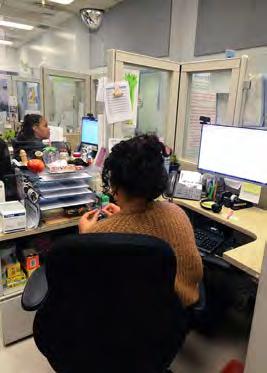
change if Proposition B continues to lead and the facility is relocated.
It also looks good for Prop K, which was spearheaded by gay District 4 Supervisor Joel Engardio. It received 52.9% of the vote to 47%, according to
been termed out in 2020. In the race for four council seats Clark is in third place with nearly 13% of the vote.
Bisexual Palo Alto Human Relations Commissioner Katie Causey appears to have fallen short in her bid for one of the four City Council seats up this year. She placed sixth with 11% of the vote.
On trial accused of leaking a confidential 2020 grand jury report about Santa Clara’s contentious dealings with the San Francisco 49ers over the football team’s stadium built in his city, gay Santa Clara City Councilmember Anthony Becker is headed toward defeat. In his bid for a second, four-year term in his District 6 council seat, Becker is in third place with 23% of the vote.
On the Peninsula, bisexual South
preliminary returns. Engardio didn’t return a request for comment.
Other measures
San Francisco voters also rejected making drastic changes to the structure of the city government in voting down Proposition D 54.6% to 45.3%, according to preliminary returns. It had called for drastically reducing the number of commissions and making some advisory only in nature.
Instead, they seem in favor of the less extreme approach outlined in Proposition E, which will establish a commission to study changes to make to the commissions structure. It is currently passing 51.6% to 48.3%, according to preliminary returns. Board of Supervisors President Aaron Peskin, a mayoral candidate who was the main proponent of E and an opponent of D, was pleased.
“Despite being outspent by a staggering 100:1, San Francisco voters saw through Together SF and their billion-
San Francisco City Councilmember James Coleman, currently serving as his city’s ceremonial mayor, easily won reelection to his District 4 seat. He took first place with 65.58% of the vote.
In Redwood City, queer and nonbinary City Councilmember Lissette Espinoza-Garnica is currently behind in their bid for a second term. They are in second place with 47.95% of the vote in the two-person race for the District 3 council seat.
In the Solano County city of Benicia, Christina Gilpin-Hayes was vying to become its first known LGBTQ city councilmember. One of four candidates running for two council seats on the November 5 ballot, she is currently in third place with 26% of the vote. t



aire donor Michael Moritz’s cynical attempt to limit public participation in government by rejecting Prop D and passing Prop E,” Peskin stated to the Bay Area Reporter. “I am elated. Mr. Moritz should be embarrassed and disband his silly political organization.”
Together SF didn’t return a request for comment.
Voters decided to accept Proposition M, which reforms the city’s business tax, 69.1% to 30.8% and accept Proposition L, which would tax rideshare services to provide money to narrow the San Francisco Municipal Transportation Agency’s budget deficit 56.2% to 43.7%. However, Prop L may not go into effect, as it needed to receive more votes than Prop M for the two tax measures to be enacted. It was short by 18,371 votes as of Wednesday morning.
In the arena of public safety and first responders, it looks like voters have passed Proposition F, which allows some police officers to delay
retirement in exchange for extra benefits, 52.7% to 47.2%; Proposition H, which expands retirement benefits for firefighters, 51.5% to 48.4%; Proposition I, which improves retirement benefits for nurses and 911 operators, 69.8% to 30.1%; and Proposition N, which creates a first responder student loan forgiveness fund, 51.5% to 48.4%. Proposition A, a school improvement bond, is passing 72.9% to 28.0%. Proposition C, which would create an office of the inspector general, is passing 59.5% to 40.7%. Proposition G, which creates a budget guarantee of certain rental subsidies, is passing 56.6 to 43.3%. Proposition J, which creates an accountability structure for funding of programs for city youth, is passing 80% to 19.9%.
Finally, Proposition O takes on added significance in a second Donald Trump administration by seeking to protect and promote reproductive rights in San Francisco. That’s passing 82% to 18%. t
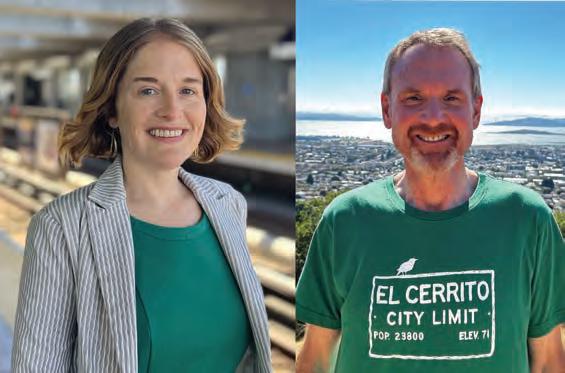
compiled by Cynthia Laird
I
t’s been nearly a year since the Oakland City Council approved the establishment of the Lakeshore LGBTQ Cultural District, and East Bay leaders will officially raise a Pride flag Wednesday, November 13, from noon to 2 p.m. in front of the Oakland LGBTQ Community Center, 3207 Lakeshore Avenue.
The community center anchors the district, which encompasses parts of the Lakeshore and Grand neighborhoods. The City Council approved the resolution last November 7, as the Bay Area Reporter previously reported.
According to the community center’s newsletter, the cultural district committee is moving swiftly and has
Leading the contest is Assemblymember Tim Grayson (D-Concord). He has taken first place with 55% of the vote based on the early returns. Beckles was vying to be one of the first out Black Latinas in the state Legislature. Rubio would be the first out Latina legislator from the Bay Area.
Other races
Several other history-making LGBTQ legislative candidates are locked in close races in Southern California. Middleton’s colleague Palm Springs City Councilmember Christy Holstege is one of several candidates aiming to become the first bisexual Democratic women in the Legislature. She is in a rematch against Assemblymember Greg Wallis (R-Bermuda Dunes) after coming close to winning his Assembly District 47 seat in 2022. Holstege is currently in first place with 50.4% of the vote.
Sasha Renée Pérez is seeking the open 25th Senate District seat span-
From page 8
Board of Supervisors President Aaron Peskin, who ran for mayor as the pro-
The Trump ads used a video clip showing a transgender basketball player towering over her young female teammates. (The Washington Post reported that the woman, Gabrielle Ludwig, played basketball at a community college at the age of 51 and was devastated by the ad.)
Another ad showed Harris responding in 2019 to a question from a transgender interviewer, asking her position on the availability of treatment for gender dysphoria for prisoners. In response, Harris chose her words carefully, noting that the law requires every transgender person in prison “have access” to medically necessary treatment.
But however much the anti-trans ads may have garnered Trump a margin of victory, at deadline Wednesday, data available from major media outlets showed Trump with 71 million votes to Harris’ 66 million. News media tallies also indicated Trump won at least four and possibly all seven swing states, finishing the race with 277 electoral votes to Harris’ 224. (It takes 270 to win.)
LGBTQs largely back Harris
The LGBTQ community invested heavily in the Harris bid to succeed Democratic President Joe Biden and become the first woman and first woman of color to win the presidency. LGBTQ papers, including those in the three swing states Harris had to win (Wisconsin, Michigan, and Pennsylvania), endorsed Harris. LGBTQ groups did, too, including the Human Rights Campaign,
so far installed both Lakeshore LGBTQ district and Progressive Pride flags on most of the light poles in the district. The City of Oakland recently installed a brand new flagpole in front of the center in preparation for Oakland’s first official LGBTQ district flag raising and dedication ceremony.
Next up for the cultural district’s branding project is the installation of a high-end LGBTQ rainbow crosswalk, the announcement stated.
Caltrain seeks applicants for bike advisory panel
Caltrain has openings for six seats on its Bicycle and Active Transportation Advisory Committee, or BATAC, which serves as the primary venue to advocate for the interests
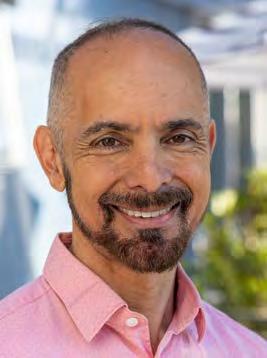
Filipino American serving in the state Senate.
ning Los Angeles and San Bernardino counties against Republican Elizabeth Wong Ahlers, a member of the Crescenta Valley Town Council. As of now, Renée Pérez is in first place with close to 58% of the early returns.
gressive candidate, has not conceded.
“We’re definitely in contention, and our numbers are sure to grow,” he told the B.A.R. late November 5. Peskin got 21.5% of first-choice votes thus far compared to 18.3% for Farrell.
the National LGBTQ Task Force Action Fund, the National Center for Transgender Equality Action Fund, and the Equality Political Action Committee.
Log Cabin Republicans backed Trump and used the transgender issue itself.
“Harris and [Democratic vice presidential nominee Tim Walz] are crusaders for a small but powerful cabal of the LGBT Left which wants to erase the concept of biological sex from society, expose young children to overtly sexualized and ideological content, and strip parents of their rights to make critical decisions about their children,” wrote national Log Cabin President Charles Moran in an op-ed September 13 in Newsweek magazine.
Equality California, the country’s largest statewide LGBTQ civil rights organization, said it is already gearing up to fight to protect the LGBTQ community during Trump’s second term.
“No matter who occupies the White House, we remain committed to fighting for our families, our freedoms, and our future,” stated EQCA Executive Director Tony Hoang, a gay man. “We will use every tool at our disposal to protect LGBTQ+ people from harassment and discrimination, create a safe and inclusive learning environment for LGBTQ+ students and ensure that transgender people can access the essential health care they need. We will keep organizing across this nation, raising our voices and resisting every barrier. Our light is too bright to hide, and our community is too strong to break.”
and perspectives of customers who use active transportation – bicycles, scooters, walking, etc. – to access the Caltrain system.
According to a news release, the openings are for a member of the public and a representative of a bicycle advocacy group from San Francisco County, a member of the public and a pub lic agency staff member from San Mateo County, and a representative of a bicycle advocacy group and a public agency staff member from Santa Clara County. The committee comprises nine volunteer members from San Francisco, San Mateo and Santa Clara

counties. One member from each county is a public agency staff member responsible for planning and/or policy development related to active transportation, one is a member of a bicycle advocacy organization, and one is a member from the general public who uses active transportation to access Caltrain, the release stated.
Applications are due by Monday, December 2, and are available at caltrain.
com/batac or by calling (650) 730-4981.
The BATAC meets in person the third Thursday of every other month at 5:45 p.m. All meetings are open to the public. t
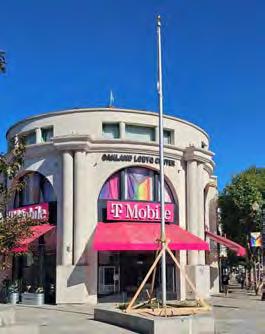
In Los Angeles County, Sade Elhawary is in first place with 59% of the early results against fellow Democrat Efren Martinez for the open Assembly District 57 seat. Elhawary, who prefers the term fluid over bisexual when it comes to her sexual orientation, would also be one of the first out Black Latinas serving in the Statehouse.
Gay former Los Angeles County Democratic Party chair Mark Gonzalez is leading in the race for the open Assembly District 54 seat. He has taken first place with nearly 57% of the vote against gay progressive Democrat John K. Yi.
Lynwood City Councilmember José Luis Solache easily defeated his Republican opponent, Paul Jones, to claim the open Assembly’s District 62 seat. Solache took first place with nearly 63% of the vote.
Lesbian Assemblymember Sabrina Cervantes (D-Corona), a married mom, is leading in the race for the open Senate District 31 seat. She has 53.4% of the vote against her Republican opponent, Cynthia Navarro.
District 11 Supervisor Ahsha Safaí ran a long-shot campaign with a ranked-choice strategy alongside Farrell (supporters of either were asked to rank both). With the end of his campaign, Safaí, who like Peskin will be departing
An unusual campaign
Biden, 81, withdrew his bid for reelection in July, after showing signs of cognitive difficulty and confusion during a June debate with Trump, 78. Biden’s decision to do so had been pushed openly by many Democrats and more opaquely by Democratic Party leaders, such as former House speaker Nancy Pelosi (DSan Francisco).
Biden immediately threw his support behind his vice president, Harris, creating a groundswell of support for the 60-year-old former San Francisco district attorney, California attorney general, and U.S. senator. Biden’s support, coupled with the party’s obvious relief that it was overcoming concerns about its nominee’s ability to serve, seemed to cure Democrats’ panic. But race and gender started to play a major part in voters’ thinking.
Voters in seven highly contested swing states gave Trump control of the White House and gave Republicans a decisive majority in the U.S. Senate. At deadline, partisan control of the U.S. House of Representatives had not yet been determined, but the New York Times reported that Republicans were leading with 197 seats to Democrats 177.
As of Wednesday morning, there were still 64 seats yet to be decided, many of them in California. That leaves open the hope that Democrats might be able to take majority control of the House. If they don’t, Trump will have a rubber stamp Congress with Republican majorities in both chambers.
Joe Scarborough, host of the popular MSNBC commentary show “Morn-
Cervantes’ younger sister Clarissa, who is queer and bisexual, had been leading on election night but had fallen into second place Wednesday in her bid to succeed her sibling in the 58th Assembly District. She was trailing at 49.4% of the vote in her race against Republican Leticia Castillo.
Former “Amazing Race” TV show contestant Dom Jones, a Black queer Orange County resident, fell short in her bid to unseat Assemblymember Diane Dixon (R-Newport Beach) in the 72nd District. Jones trails with about 40% of the unofficial vote.
In the Republican versus Republican race for the open Assembly District 75 seat in San Diego County, gay conservative firebrand Carl DeMaio is in first place with 60% of the vote. The former San Diego city councilmember is trailing Andrew Hayes, president of the Lakeside Union School District Board of Trustees.
Should DeMaio pull off a win, he would become the first out Republican elected to the Legislature. And it would automatically raise questions if he would be allowed membership in
the San Francisco Board of Supervisors, didn’t return a request for comment. He and Peskin are both termed out of office.
Safaí got 2.7% of first-choice votes.
The two gay underdog mayoral candidates, Keith Freedman and Jon Sod-
ing Joe,” said Wednesday morning he believes the anti-transgender ads that popped up during football games in the swing states “had a bigger impact than any ad that ran and that’s why they ran it 30,000 times.”
Washington Post commentator Matt Bai said, “Democrats dug themselves into a hole on cultural issues and identity politics.”
One of the ads’ closing lines was “She’s for they/them, he’s for you,” noted Bai, who agreed that “Trump’s vicious transgender ad in the closing weeks was probably the most effective of the cycle.”
“I think that probably landed with a lot of traditionally Democratic voters who feel like the party is consumed with cultural issues while the economic issues don’t really change,” wrote Bai.
On conservative Joe Rogan’s podcast, Republican vice presidential candidate Senator JD Vance (Ohio) said, “Frankly, I wouldn’t be surprised if me and Trump won just the normal gay guy vote because they just want to be left the hell alone.”
Gay CNN news anchor Anderson Cooper pondered Vance’s comment on his show.
“I’m curious where the line is between a ‘normal gay person’ and a not normal gay person is,” said Cooper. “I’m assuming that wearing as much makeup as Donald Trump wears – that would be considered not normal – fine for Donald Trump but on a gay guy that wouldn’t be considered normal.”
Los Angeles Times reporter Noah Bierman told ABC that, while transgender people are not a top issue for Republicans in the same way migrants are, the
the Legislative LGBTQ Caucus, having opposed various LGBTQ-related bills it has backed over the years.
What was certain headed into Election Day was seeing the current 12-person affinity group for LGBTQ legislators increase in size during the 2025 legislative session even though three current Legislative LGBTQ Caucus members are departing. Lesbian state Senators Toni Atkins (D-San Diego) and Susan Talamantes Eggman (D-Stockton) are both termed out this year, while gay Assemblymember Evan Low (D-Cupertino) opted to run for Congress instead of another legislative term.
The six male incumbents who did seek reelection Tuesday all won their races. In the greater Bay Area region they are gay state Senators Scott Wiener (D-San Francisco) and John Laird (D-Santa Cruz), and bisexual Assemblymember Alex Lee (D-San Jose).
The rest represent Southern California districts. They are gay Assemblymembers Corey A. Jackson, Ph.D., (D-Perris), Chris Ward (D-San Diego) and Rick Chavez Zbur (D-Hollywood). t
erstrom, fell short as expected. Soderstrom was knocked out in round three and Freedman in round eight after the ranked-choice tabulations. t
ads were “really intended to bring the culture wars back in.”
“The Trump campaign is heavily focused on young men, and they feel like this is an issue that resonates with them,” said Bierman. He said they are also intended to paint Harris as an out of touch liberal.
A national poll of 806 registered voters, conducted online and by phone in mid-October, found that 8% (64 voters) identified themselves as LGBTQ+. While voters overall split 50% for Harris, 47% percent for Trump, 3% others, voters who identified themselves as LGBTQ+ preferred Harris 78% to Trump’s 20% and other’s 2%. (The poll also provided some interesting data on how “masculine” and how “feminine” the voters perceive each candidate to be and how that affected their votes.)
Coincidentally, three states voted on same-sex marriage laws Tuesday: California, Colorado, and Hawaii. Although the U.S. Supreme Court ruled in 2015 that states had to allow same-sex couples to obtain marriage licenses the same as heterosexual couples, very few states that had banned such marriages took the language out of their state constitutions.
In California, voters approved Proposition 3 to amend the state constitution to repeal the language of Proposition 8, which in 2008 prohibited same-sex marriage. (Courts eventually overturned Prop 8.) Passed by 61% of the vote, Prop 3 amends the state constitution to establish a right of marriage for same-sex couples. A similar measure, Amendment J, in Colorado passed with 64% and, in Hawaii, Question 1 passed with 61%. t
by Matthew S. Bajko
A n immediate past board cochair of LGBTQ senior services provider Openhouse has stepped down to take on the position of interim executive director of the San Francisco-based agency. The nonprofit is also launching a search to hire a permanent leader following the departure last month of Kathleen Sullivan, Ph.D.
Vinny Eng, who is gay and queer and had served as board co-chair since July 2023, has been named interim executive director. He told the Bay Area Reporter in a November 1 interview that he would not seek the job and would step down when a successor to Sullivan was named.
“I was very clear to the board my role is to be a bridge,” said Eng, 42, who expects to be in the role through next summer. “I want to give them time to be intentional and deliberate about how to proceed with identifying the attributes they want in the next executive director.”
As the B.A.R. first reported online October 18, Sullivan announced her resignation via a post on the professional networking site LinkedIn. Since then, a number of the agency’s executive staff had been overseeing the dayto-day operations and programming.
The agency, with a budget of more than $5 million, has a staff of 44. Eng will be serving part-time as interim executive director. While he would not disclose what his compensation will be, Eng expects to work about 24 hours a week or the equivalent of three days.
He said it would be well less than Sullivan’s salary, which was $176,109 according to the agency’s 2024 tax filing. Eng has advised the board that it have the new executive director hired before July 1.
“It just naturally makes sense to bring in someone at the beginning of the fiscal year,” said Eng. “But, who knows, we may be lucky and we find someone sooner.”
Along with his deep ties to Openhouse, Eng has been a longtime member and former board member of the Alice B. Toklas LGBTQ Democratic Club. He was named a community grand marshal of the city’s
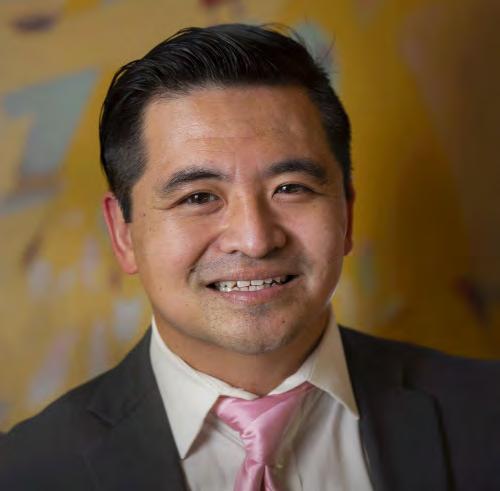
Pride parade in 2022.
According to a profile of Eng published that June by the San Francisco AIDS Foundation, Eng’s parents escaped Cambodia’s violent Khmer Rouge regime to resettle in the United States. Eng, born and raised in Los Angeles’ Echo Park neighborhood, “lived for 13 years in a one bedroom rented apartment with 6 relatives,” noted the profile.
Following the 2012 killing of his sister, Jazmyne Ha Eng, while experiencing a mental health crisis by four Los Angeles County sheriff deputies, his family sued the county, which paid the Engs $1.85 million to settle the suit, as the Los Angeles Times reported.
In 2019, Food & Wine magazine named Eng one of its sommeliers of the year. He then pivoted careers, leaving Tartine Manufactory as its wine director and general manager to become an organizer with Compassionate Alternative Response Team and push for community policing reforms at the San Francisco Police Department.
During the COVID pandemic
Eng co-founded SF New Deal, which helped deliver a million meals to vulnerable community members while also helping to support local businesses whose revenues had been impacted by the global health crisis. Eng currently serves as an adviser to the California Department of Social Services and UCSF’s Tuberculosis Research Action Center.
Eng had been employed as director of policy, advocacy, and community organizing at Safer Together, which presses for a more equitable health care system. He had stepped down from that role in May to become an adviser for Physicians for Human Rights, a global human rights advocacy organization.
Eng told the B.A.R. his role with the non-governmental organization isn’t full-time and based on a project that is on hold at the moment. Thus, he has the time to serve as Openhouse’s interim executive director.
“My focus is to take care of the community and staff, and make sure there are no disruptions to how the organization operates on a daily basis for the next couple of months,” he said.
The agency officially announced Sullivan’s departure and Eng’s stepping in to lead it in a November 1 news release. In it, Sullivan disclosed that she is now focused on launching a worker owned in-home care business “that will support higher pay and advancement for the worker owners,” as well as a master training to assist older adults remain independent in their communities.
“It has been such a wonderful experience serving as the executive director of Openhouse,” stated Sullivan. “I am so proud of the work we have done together to expand programming in order to better serve the LGBTQ+ community of people age 50 and older in San Francisco.”
Board Co-Chair Mark Buchanan stated the agency was “deeply grateful” for Sullivan’s leadership over the past three years.
“Her vision and dedication have shaped an incredible team that will continue driving our mission forward,” stated Buchanan. “Kathleen has made a significant impact on advancing care for LGBTQ+ older adults, and we are excited to see her continue making a difference in her future endeavors. We wish her every success as she embarks on her next chapter.”
The agency received some criticism for how the news about Sullivan’s departure was announced, Eng acknowledged to the B.A.R. He said the board waited until Friday to officially send out a news release on the matter once his being named interim executive director had been finalized.
“I recognize the feedback a lot of ... community stakeholders sent us where we could have done better announcing this transition,” said Eng. Sullivan had been hired to lead Openhouse in the summer of 2021, largely based on her experience with building affordable senior housing in the Pacific Northwest.
Surveys and a needs assessment of San Francisco’s older LGBTQ adult population have repeatedly found housing to be a main concern among
queer and transgender seniors in the city. Affordable apartments and homes built specifically for that population are severely lacking not only in San Francisco but across the Bay Area region and statewide.
Mercy Housing California, a nonprofit affordable housing developer, worked with Openhouse to provide 119-units of LGBTQ-welcoming affordable senior housing split between the buildings at 55 and 95 Laguna Street. It is part of Openhouse’s campus of administrative offices and a community center.
The two agencies were selected by the city to oversee the construction of 187-units of affordable housing aimed at LGBTQ seniors at the corner of Market Street and Duboce Avenue. Mayor London Breed’s administration bought the labor union-owned property for $12 million in 2020.
The project has been delayed as Mercy officials try to secure governmental funds to help pay for its construction. As the B.A.R. reported in September, a state agency that funds housing projects for the second year in a row rejected Mercy’s application, though it said it welcomed it applying again in 2025.
Mercy officials have said they intend to do so, meaning if they are successful in seeking state funds next year then the earliest ground could be broken on the new 15-story tower of rental apartments a short walk from the Openhouse campus would likely be sometime in 2026.
Asked about the hiccup in securing state funds, Eng said he isn’t “the only one confused” about the state agency’s decision. He remains hopeful it will be selected next year and has offered his help to Mercy’s housing developer team.
“My disappointment is around how can we communicate why this project would mean so much for the LGBTQ-plus community statewide and why it is important to build it so we can continue to be a trailblazer,” said Eng. t
by an individual, and is signed SELASI SETRANAH. The registrant(s) commenced to transact business under the above listed fictitious business name or names on 10/04/2024. The statement was filed with the City and County of San Francisco, CA on 10/09/2024. OCT 17, 24, 31, NOV 07, 2024
FICTITIOUS BUSINESS NAME STATEMENT FILE 2024-0404618
The following person(s) is/are doing business as JUDITH, 2790 MISSION ST, SAN FRANCISCO, CA 94110. This business is conducted by an individual, and is signed IRIS YOLANDA SILVA AGUIRRE. The registrant(s) commenced to transact business under the above listed fictitious business name or names on 10/09/2013. The statement was filed with the City and County of San Francisco, CA on 10/02/2024. OCT 17, 24, 31, NOV 07, 2024
FICTITIOUS BUSINESS NAME STATEMENT FILE 2024-0404558 The following person(s) is/are doing business as EMERGING INSIGHTS PSYCHOLOGICAL SERVICES, 3321 SACRAMENTO ST, SAN FRANCISCO, CA 94118. This business is conducted by an individual, and is signed BROOKE FERRAGAMO. The registrant(s) commenced to transact business under the above listed fictitious business name
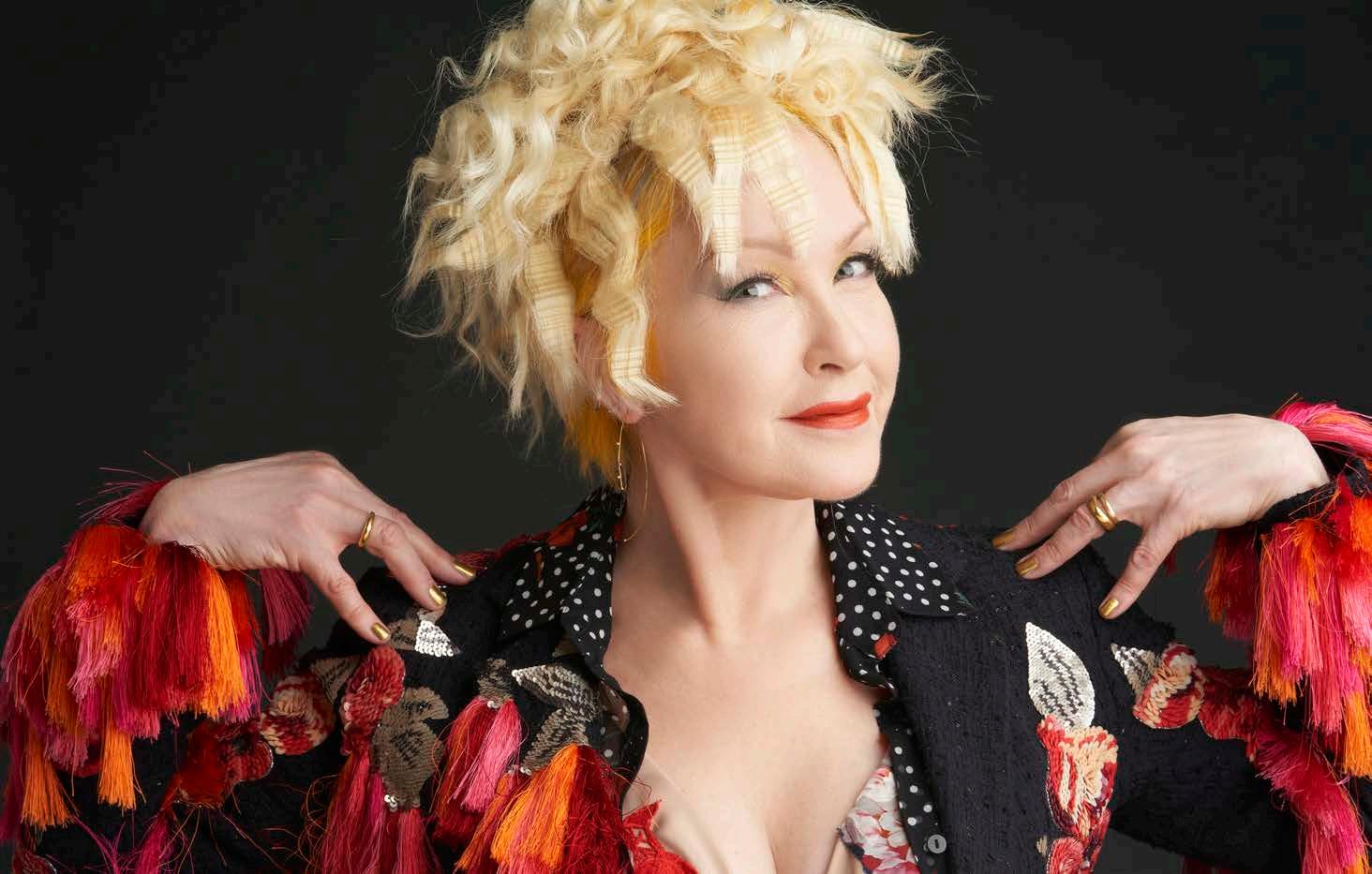
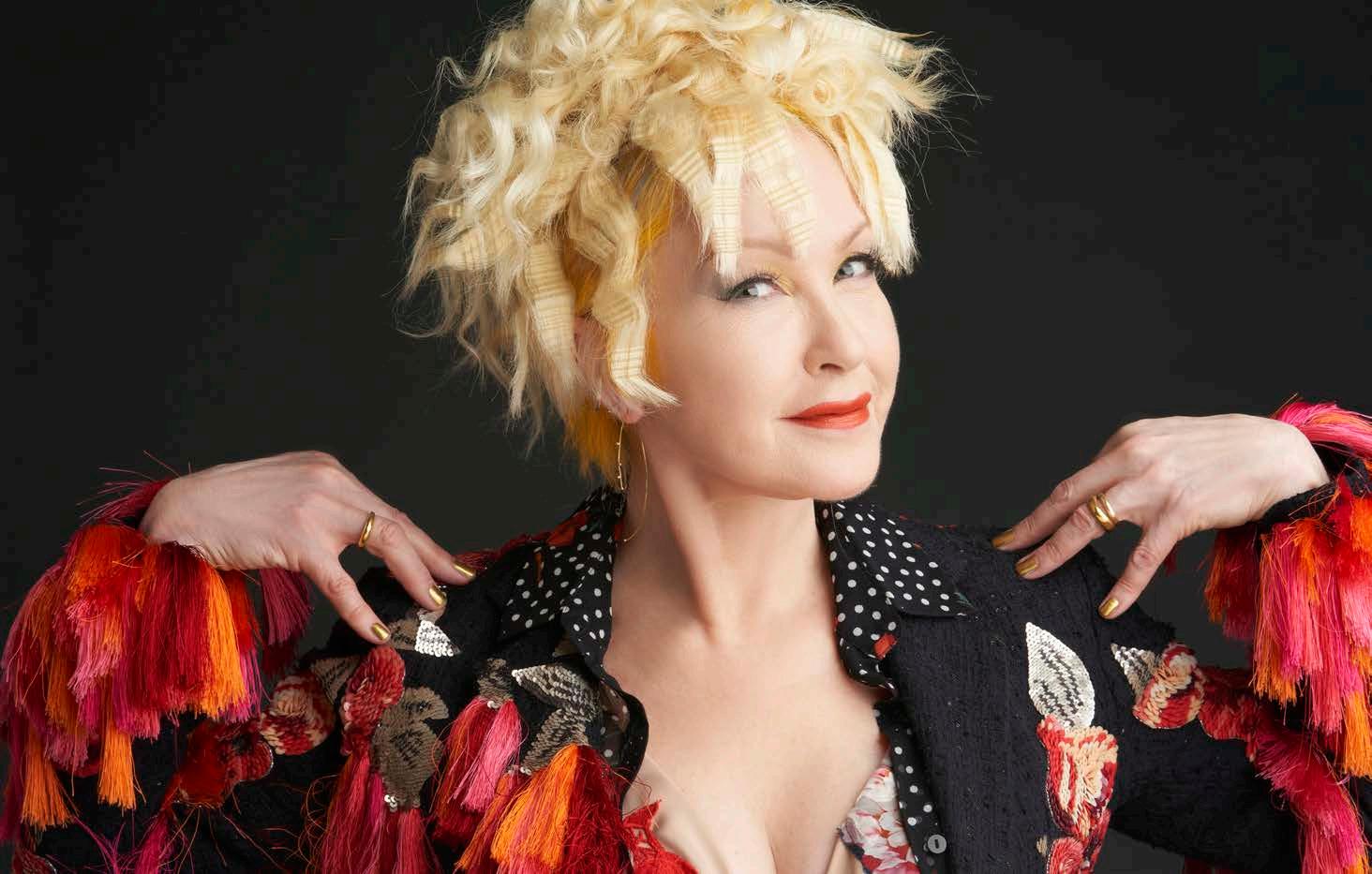














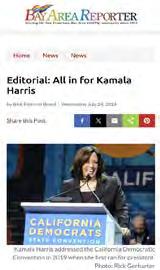
by Brian Bromberger
It’s no accident the wide release of “Conclave” (Focus Features) a film about a papal election, was moved up from its Thanksgiving opening to almost two weeks before our national election. There are so many allegorical parallels, especially flawed human beings trying to change the world for the better, yet having to deal with their own egos. The movie poses the question, “Can we still believe in this flawed institution, the church?” while knowing the machinations of its inner workings, just as media pundits are speculating whether America still believes in democracy.
When we look into the faces of cardinals in this film, are we seeing clerics or politicians? Perhaps the more pertinent observation is when we see the rivalries, we’re also witnessing the political tensions underneath the surface, so this standout film becomes both a civic and faith allegory.
Rituals and rites
The Pope has died suddenly in his sleep and it’s up to Cardinal Lawrence (Ralph Fiennes), as dean of the College of Cardinals, to organize the conclave, which will select the successor to the throne of St. Peter. It’s a 750-year-old ritual, making it Western civilization’s oldest continuing election. It must be run with military precision but also in total secrecy. Lawrence wants nothing to do with this election, or so he claims, but must keep any personal aspirations private and remain neutral.
In fact, a short time before the pope died, Lawrence asked to leave Rome and retreat to a monastery in the hope of rediscovering his faith, but the pope denied his request (“Some are chosen to be shepherds and some are chosen to manage the farm.”). His questions are less about God and more about faith in the institutional church. Faith and doubt always work in tandem
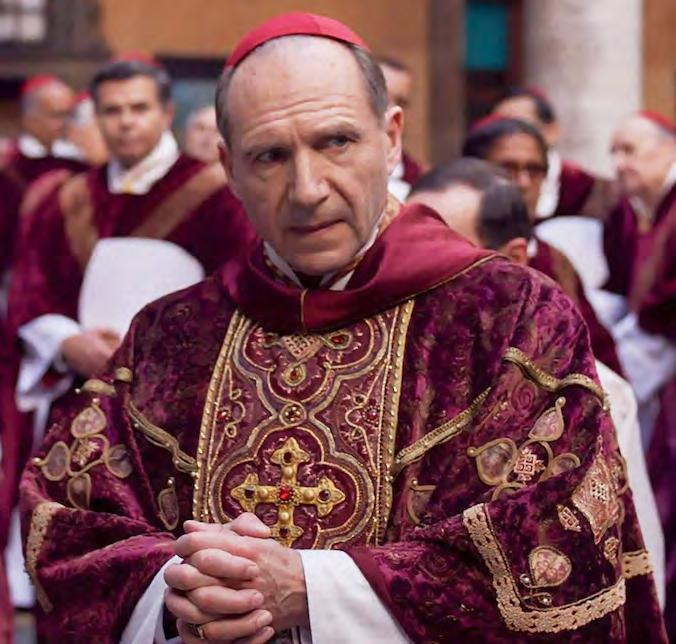
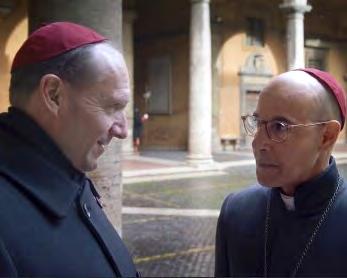
with each other. Because he has spiritual integrity, Lawrence’s conscience is forcing him to ensure the election proceeds morally, procedurely, and transparently.
There are several front-runners, all of whom are ambitious and manipulative. An American, Cardinal Bellini (Stanley Tucci), who as the Secretary of State, is the defacto leader of the progressive faction (more proof this is fiction, as most American cardinals are conservative). He’s a canny diplomat, but also a cutthroat insider who knows how to maneuver the system to his advantage.
Traditions vs. reforms
His nemesis, also in contention, is Cardinal Tedesco (Sergio Castellitto) of Venice, an archconservative Italian traditionalist, who wants to lead the Catholic Church back into the

Dark ages with Latin masses. He’s a reactionary, rejecting many of the Vatican II reforms, along with holding thinly-veiled racist views.
Another candidate is Cardinal Adeyemi (Lucian Msamati) of Nigeria, with regressive, anti-LGBTQ beliefs, who would become both the first Black man and African elected pope, but is hiding a past secret personal indiscretion. We also meet Cardinal Trembley (John Lithgow) of Montreal, the front runner, a centrist, who may or may not have been thrown out of the church by the Pope right before he died, because of financial malfeasance.
Finally, a wild card in the proceedings is introduced in the person of Cardinal Benitez (Carlos Diehz), a Mexican-born priest, running an underground church in Kabul, Afghanistan, whom the late pontiff secretly appointed to the cardinalate shortly before he died. Is he an interloper or a Christ figure?
There’s a group of nuns, headed by no-nonsense formidable Sister Agnes (Isabella Rosellini), who despite hearing and seeing almost everything, must serve the basic needs (food, comfort) of the cardinals with cheerful acquiescence, while remaining quietly in the background.
The movie plays like an elaborate chess game of political intrigue, with each contender having a spotlight moment, making their signature move on the board. The whole scenario feels like one of those Masterpiece Theater British locked-room murder mysteries, with the sleuth trying to deduce the killer, only here it’s the best nominee for the job. Another analogy is 12 people sequestered in a claustrophobic jury room trying to come up with a verdict, cut off from any contact with the outside world.
Cardinal Lawrence is the sleuth and jury foreman, who must deal with crises, pettiness, scandals, gossip, whistle-blowers, shady backroom deals, Machiavellian machinations, and not least of all, a terrorist attack in Rome, even if he has to break some
rules to fulfill his mission.
The film moves like a fast-paced intrigue suspense thriller in the same way director Edmund Berger handled his last triumph, the Oscar-winning movie, “All Quiet on the Western Front,” but commandeered with precise attention to detail, craftsmanship, and a humanistic vision. It’s a battle between spiritual idealism and realpolitik. It concludes with a final twist, which will leave audience’s jaws dropping with shock. Oh, there’s also an LGBTQ sub-plot which is essential, but we won’t spoil it for you.
Authenticity and poetry
The stellar acting launches the film over the moon. Fiennes, with his sad, pleading eyes, slumped shoulders, dour disposition, and looks that suggest a multitude of emotions, in a possible career-best multi-layered performance (maybe a tie with his Nazi commandant in “Schindler’s List”) is sensational. It’s a virtual certainty he will be nominated for a Best Actor Oscar. All the supporting ensemble players are impeccable, especially scene-stealing Tucci.
The pomp pageantry and austere visual sumptuousness make you believe you are at the Vatican itself.
The overall tone is smart, provocative, polished, but darkly comic in spots. Overall, it’s pro-Roman Catholic, provided reforms are made to make the church more inclusive. However, to its detriment “Conclave” barely acknowledges the clergy sexual abuse crisis.
The film could easily have slipped into a stodgy tutorial or classy soap opera, but screenwriter Peter Straughan (based on the highly recommended best-selling novel by Robert Harris) steers clear of pulp fiction, with believable penetrating dialogue conveying delicacy, authenticity, even poetry intermittently.
“Conclave” is an entertaining juicy potboiler, mesmerizing from start to finish, a religious “Succession.” So don’t walk, but run to your local cineplex, and prepare to be beguiled by clearly one of the year’s most engrossing, scintillating cinematic achievements.t www.focusfeatures.com


“You may be angry. These are difficult times and you may have a good reason for feeling that way. But imagine a world where instead of holding on to our anger, we use it to channel a more communal sense of love to make up for the lack thereof. What a world it would be.”
…you mean Madness, The English Beat and The Specials?
The Specials! I thought they were extraordinary. The singer (Neville Staple), I don’t know where his family was from, I guess he could have been Jamaican English. He was so fierce, singing so great, and he climbed up on top of the speaker and put up his fist and he’s singing his guts out. I’m thinking, “It’s Mighty Mouse!” When I was a kid that was kind of my favorite show, I don’t know why [laughs]. But it always influenced me, and I remember in ’84, ’85 I was still free. When ’86 came then I became a prisoner of the system.
Being on a major record label, and all that.
I wasn’t allowed to touch anybody. I wasn’t allowed to go out to them (in the audience) or have them come to me. It was totally different, and I totally hated it.
Did you ever imagine that 40 years later you would be embarking on a farewell tour?
Well, at some point, sure. I think that for me this is the perfect time. Because it’s a kind of bucket list of what I always wanted to do.
In the beginning, it was roughneck style. Whatever I could jimmy-rig, I did. When I got to a certain point, we were doing the (live) “Money Changes Everything” video. I had fantasies of a cherry-picker. Because of our budget, everyone said, ‘Well, you can’t get a cherry-picker but we’ll give you a garbage pail and a pulley system.’ I thought to myself, ‘Oh no, like Oscar the Grouch?’
I had a friend who was a great interviewer, and she used to interview everybody from a garbage pail. So, of course, that’s what my people gave me to go up in the crowd. I thought it was a pulley system. The pulley system was actually 10 men with rope holding it. When I started to shake (while singing), I started to slip out of their hands. They brought me right in. That could have been the reason that the lawyer made me sign my will before I left.
Earlier this year, “Let The Canary Sing,” Alison Ellwood’s documentary about you, received a theatrical release. After having your memoir published in 2012, did it feel to you like the documentary was the next logical step, a continuation of sorts?
Well, not for me. I didn’t want to have a documentary. It was the pandemic, and everyone was saying,
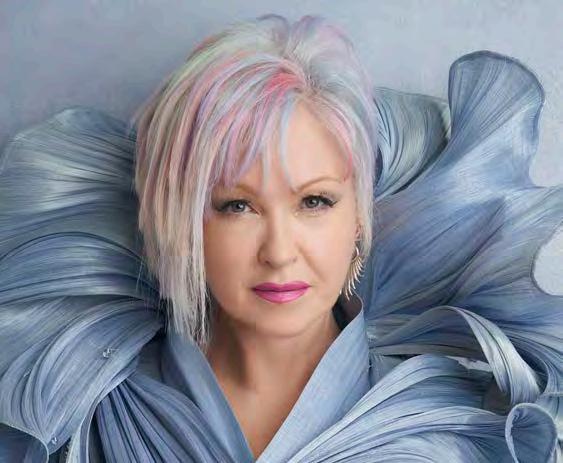
“Everybody’s doing documentaries now, Cyn! Come on, what are you doing?”
I was like, “I’m not dead!”
Then I started watching documentaries on the streaming services and I saw “Laurel Canyon.” I felt it was an extraordinarily captivating documentary for me because it was the history of music. All of the people and players in that story were very much influential for me as a growing artist, especially in the ’70s. I looked and saw who directed it…
Alison Ellwood!
When they came at me again, I said, “I want a film, not a TV special. So, how about Alison Ellwood? She makes films.” She wanted to do it! I think she did a good job. It’s not your typical story. I don’t think anybody’s story is typical. Right? We think we know people, but I guess we don’t. You think, “It’s typical! You start a band.” Which is always my theory! If something’s wrong, start a band, start playing out, you’ll feel a lot better!” [Laughs] It doesn’t always go that way.
When I saw you perform in Boca Raton in 2016 in support of your “Detour” album, you asked for a moment of silence to honor Christina Grimmie, who had been shot and killed in Orlando the night before. The next morning, after your concert, many of us woke up to the news of the shooting at the Pulse nightclub in Orlando. With those tragedies in mind, and this upcoming election, which is so terribly important, especially for women and LGBTQ+ folks, is there any-
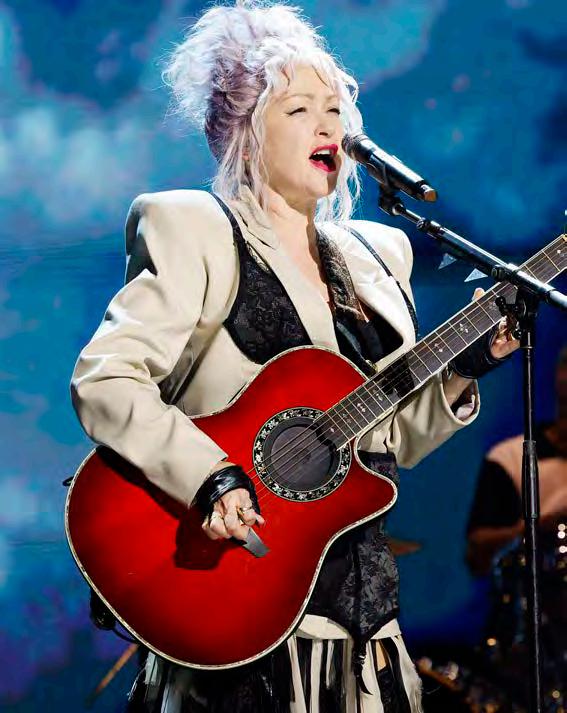
they voted for so that you can make an intelligent decision on who is going to represent you, not them.
This war against women has been going on since the ’60s. It’s just been going and going, and we need to stop it because we are half the population. As far as the LGBTQ people, you have to vote. You have to be informed. Every time you have to vote, you vote! Don’t say, “Oh, it doesn’t matter for this one.” It matters!
Because they put laws in there. There are community people that represent you and you need to start on a community level, a grassroots level to ensure that there are people that are going to speak for you as a human being. We are all human beings here.
Oh, I have a lot to say about that. You need to vote! You vote on every voting occasion. You can’t just lie down and get rolled over. This is our country, too. And always share your stories. Because people who work with you, that you’re friends with, sometimes they don’t understand. They don’t know.
thing you’d like to say to your fans?
Absolutely! There is an organization called Vote411.org. Taylor Swift recently, finally put that up. You go online and you find out all the questions and all the people that are running and what
As I said, women are half the population and LGBTQ, I venture to bet are pretty large part, too. This country was founded on the separation of church and state. Separation! I don’t want anybody to have ownership over my body. They say they want local communities in charge, but yet they have SCOTUS making federal laws about what you do in your bedroom and what you do with your body and who you are and nullifying families.
What’s really interesting now, from when we started with True Colors United, I think that people do not understand gender identity, which is a whole different thing. If you want people to listen to you, you’ve got to listen to them. Just because they’re different from you, doesn’t mean that you have to be like them. You have to learn on both sides of the fence. Knock the fence down, because we’re all human beings; just everybody’s different, that’s all.t
Read the full interview, with several music videos, on www.ebar.com.
Cyndi Lauper performs her Girls Just Wanna Have Fun Farewell Tour concert at the Chase Center (Trixxie Mattell opens), Tuesday, November 26, 8pm. $29-$350. www.ticketmaster.com www.cyndilauper.com




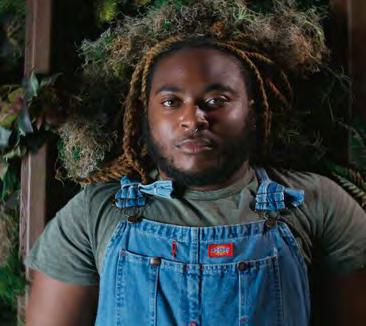
by David-Elijah Nahmod
Since 1997 the San Francisco Trans-
gender Film Festival has been presenting works from trans people all over the world. Even during the pandemic continued, albeit online.
The festival has since returned to its home at the Roxie Theater, while also offering its programming online to an international audience. From November 13-16 seven programs of short film by trans, nonbinary and gender nonconforming filmmakers will unspool at the Roxie. The same seven programs will be available online from November 18-24.
This year the festival takes on an extra special meaning due to the anti-trans backlash going on not only in red states, but in other countries around the world. Shawna Virago, artistic director of the festival, told the Bay Area Reporter that the community is not being silenced by all the hate.
“Despite the over 600 anti-trans bills introduced in legislatures around
Past as prologue
John Fisher argues that “Cabaret” is a show that meets our moment, regardless of the election’s outcome. It’s a meta-musical about the ways we use entertainment for self- and social deception, a song-and-dance distraction from the sinister creep of fascism.
“I’m not one of the people who thinks Trump is a Hitler,” said Fisher.
the country, there’s a lot of resilience, smarts and creativity in trans and nonbinary communities,” Virago said.
“We’re survivors. The festival has also been the target of alt-right attacks. I think in response to all this ignorant backlash, there has also been a burst of unmatched creativity from nonbinary and transgender people, and this is reflected in this year’s films.”
Virago added that the exact number of anti-trans bills introduced is 661, and that they’ve been introduced in 45 states.
“The Republican party and its base are ramping up the hatred against us right now to get votes,” she said.
The festival has been going strong for an impressive 27 years, and continues to grow each year.
“My friends Christopher Lee and Alex Austin started the festival in 1997 and we’re still here, mostly from being insouciant and smart,” said Virago. “We’re the longest running transgender film festival in the world. We were founded with radical queer
“I think that’s an underinformed judgement. But I do understand that people are afraid of the direction this country is headed. And I think the message of the show is that we need to stay engaged.”
However wise about Weimar “Cabaret” may be, its insights were gleaned only in hindsight. Songwriters Kander and Ebb, book writer Joe Masteroff, and director Hal Prince –who conceived the show’s cunningly self-aware narrative structure – de-
values, and we remain intentionally anti-assimilationist and centers works that challenge transphobia, racism, sexism, ableism, anti-migrant hate, and homophobia.”
Notable films
Some of the festival highlights include the New Zealand film “Nest,” directed by Willem Koller, which Virago describes as camp horror at its best. In the film, a reluctant mother-to-be has a deeply shocking labor experience.
“Fans of ‘Rosemary’s Baby’ will love this film,” Virago said.
A more topical film screening at the festival is “Daisy: Prophet of the Apocalypse,” directed by Venus Patel. This film takes a stand against antiqueer and anti-trans hate. It tells the story of a radical trans preacher who sets out on a journey to prophesize the end of the world, promising salvation only for those who denounce heterosexuality.
“Our call for submissions generates approximately 100 to 150 film sub-
livered their Tony-winner in 1966, more than two decades after a lack of such conscious conscience led to the death of millions of Jews, queers, and other marginalized citizens.
Even if the Rhino production opens with Kamala Harris as our President-Elect, said Fisher,
“We can’t be off partying and ignoring the bigger picture. That’s a major aspect of our culture; that urgency push to not think about things but to buy things and keep ourselves entertained.”
missions,” said Virago. “We work with our screening committee to view and select films. We have a punk streak and prioritize do-it-yourself films, but are also receptive to all genres and
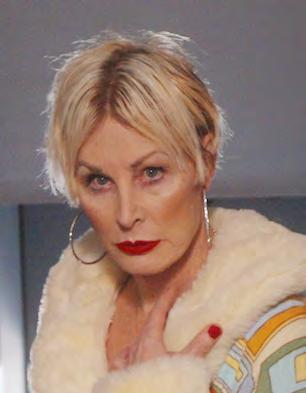
aesthetics. We have radical values and also are a lot of fun.”
Virago added that many of the filmmakers will be present for post screening Q&As. And after their opening night screening, on November 13 there will be an after-party at the Mother bar on 16th Street. She concluded by pointing out why it is important to have a transgender film festival instead of screening these films at larger festivals like Frameline.
“I think we need all of our queer film festivals, including Frameline, plus artists and art organizations to amplify our common struggles and also to celebrate how awesome it is to be queer,” she said.t
San Francisco Transgender Film Festival, November 13-16, Roxie Theater, 3117 16 Street, November 18-24, on demand online. Note: program #7 is 18+ only. All films close captioned for the hearing impaired. KN95 masks, required in person, will be provided. Sliding scale, $0-$50. www.sftff.org


“Cabaret” is a harbinger, wrapped in a postmortem, inside an amusement.
A Castro-scaled production
The emcee character in “Cabaret,” famously played on Broadway by gay actors Joel Grey, Alan Cumming, and currently Adam Lambert, is a Roy Cohn Harlequin, addicted to the spotlight, strategically silent.




At The Rhino, excellent company veteran Rudy Guerrero (Mitzi in “Priscilla Queen of the Desert”) will take on the emcee role as part of a cast of seven, the rest of whom will double as primary characters and Kit Kat Club performers, further compressing the work’s show-withina-show conceit.
Also compressed will be the show’s performance space. The Rhino’s tiny 18th Street theater is closer in size to the sort of louche underground club portrayed in “Cabaret” than the grand venues its most celebrated productions have played.
“There’s not a whole lot of room for the actors to be ‘off stage’ in the Castro,” said Fisher. “But that’s fine. The experience becomes extremely intimate. It’s so rare to do a musical where you can hear singing without the need for amplification.

are small, real lives. The problem the characters in this community have is that while they’re pretty good at performing, they’re much more dysfunctional when it comes to dealing with real life.”t
‘Cabaret,’ Nov. 21-Dec. 15. $17.50-$50. 4229 18th St. www.therhino.org
place. These
“The space is also very true to the Berlin of the story. The Kit Kat club is not Broadway. It’s a
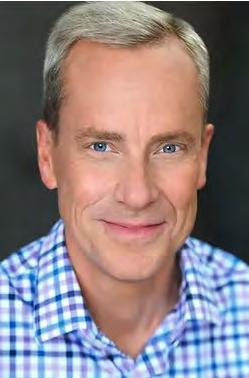
by Finbar LaBelle
Set to be released on December 10, “The Book of Awesome Queer Heroes: How the LGBTQ+ Community Changed the World for the Better” will make a wonderful addition to any bookshelf, especially one that may be missing a breadth of inspirational queer virtuosos from across the ages.
The book is written collaboratively by Eric Rosswood and Kathleen Archambeau, neither of whom are strangers to championing prideful books that uplift. Given the duo’s delivery of memorable biographies of queer icons, it is time to spotlight the dynamic authors themselves.
Rosswood, an author and LGBTQ activist, has written five books, including two children’s stories and a queer parenting book “The Ultimate Guide for Gay Dads,” published in 2017. Archambeau, along with being an author and journalist, is a founding member of the James Hormel LGBT wing of the San Francisco Public Library. Not only that, but as a samesex ballroom dancer, she and her wife won two medals at the Gay Games in Cologne.
The book begins with an excellent foreword by the prior executive director of the National Center for Lesbian Rights and current CEO of


The California Endowment, Kate Kendall. The following 219 pages of the collective biography features 53 individuals across ten categories ranging from Government and Military to The Arts and Sciences. Each trailblazer is paired with a black-andwhite portrait and a fitting quote that captures their essence, whether it’s a reflection on their queer identity or a mantra about their work.
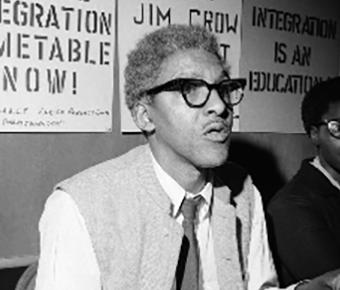
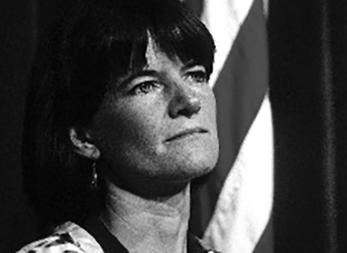
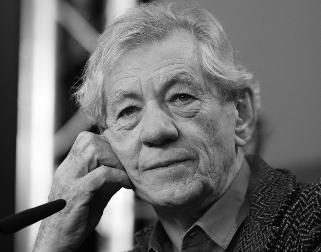
It is a pleasure to recognize familiar faces like RuPaul, Frida Kahlo, James Baldwin, Mary Oliver, and Sir Elton John and gain a deeper insight into their lives and work. However, what is more surprising is to see the monumental figures that history tends to skip over or even erase.
Foremost, Bayard Rustin, a mentor to Martin Luther King Jr. and a significant orchestrator of the March on Washington, is consistently overlooked in history books. Rustin, who traveled to India in the 1940s to learn from Gandhi, combined pacifism with elements of the Quaker religion and the socialist sentiment of fellow civil rights activist, A. Phillip Randolph. Taking his revolutionary thinking, Rustin advised King in tactics of nonviolent civil disobedience and resistance.
As with any compilation of queer heroes, the book is not complete without reference to multiple San Francisco legends. Readers will get to know a little more about amazing San Franciscans like Margret Cho, Harvey Milk, and Rabbi Camille Shira Angel.
Unexpected additions
The book resists confining the subject to their usual representation, but includes many people one would not expect. A wonderful example is learning about Archbishop Carl Bean and not only his contributions to religion, but also his surprise 1970 Motown hit, “I Was Born This Way.” More unexpected facts, twists, and revelations reveal themselves while continuing to read.
The book draws a line from the mind of Alan Turing, the gay scientist known for cracking the Nazis’ Enigma code hence accelerating the end of World War II, to the fingertips of Tim
Cook, another gay tech icon. As one delves into the pages, uncovering surprising links between queer history and innovation is a constant delight. Additionally, the short and easy to read biographies tend to conclude in acknowledgments of the individual’s broader impact, highlighting their involvement in various, often queer, social causes. From activism and entrepreneurship to personal struggles and triumphs, the biographies offer a more comprehensive portrait of each individual that strays from the typical.
As the book builds to a conclusion, it succeeds in weaving the lives of visionary queer figures through many a decade. Showcasing the groundbreaking work of these pioneers, from transgender ballet dancers to lesbian astronauts, the book affirms the enduring and growing influence of the LGBTQ community on the world. It offers a perfect homage to the legacy of those who have lifted the community from the margins and into the forefront.
Returning to the beginning, the book is dedicated to “all LGBTQ+ youth with big dreams.” From the care put into this book, the reader can tell the authors and their beliefs in visibility as a key component to finding your place in the world as queer person.
Echoing their chosen quote from Sally Ride, “You can’t be what you can’t see,” the book makes an impactful holiday gift to any young queer person in your life looking to be reflected in history. Or, maybe, this is a perfect present for yourself if you happen to be seeking an extra role model, or two, from any and all fields.t
‘The Book of Awesome Queer Heroes’ by Eric Rosswood and Kathleen Archambeau, $18.99, Mango Publishing Group www.mangopublishinggroup.com www.karchambeau.com www.ericrosswood.com
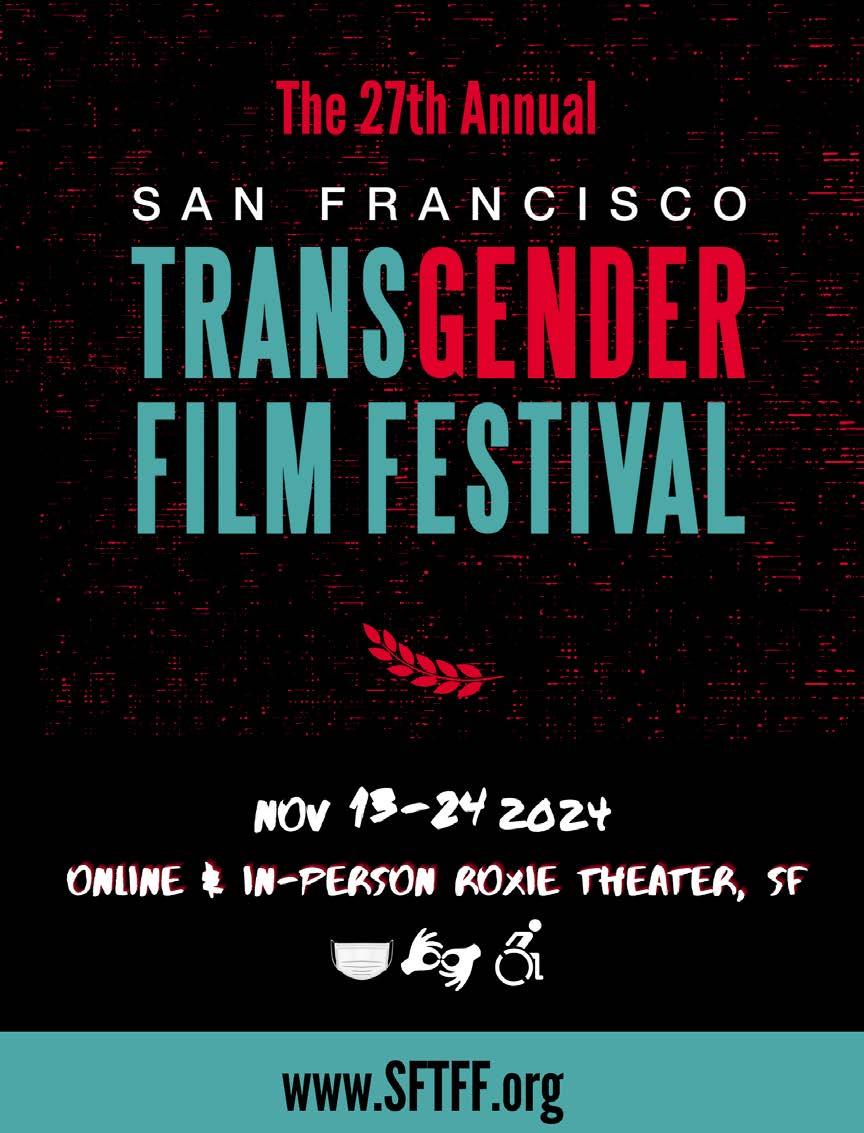
by Tim Pfaff
Ideas tumble out and collide in Yuval Sharon’s “A New Philosophy of Opera” (Liveright). The out American director, deemed a maverick by many, steps off stage to deliver his manifesto about keeping putatively imperiled opera alive.
There’s no doubting the deep personal experience underlying his observations, which include frequent reflections on opera’s history, marshaling evidence to demonstrate what has and has not worked in the development of this most exotic –and, Sharon argues, collaborative– form of both art and entertainment. He offers his analyses and surprisingly few prescriptions as a prolegomena for the future of an art that has, over five centuries, been dying, or said to be.
His primary point is that the hope for the survival of opera, and its growth and development as a mixedarts form, depends on its liberation from the tyrannies of the proscenium. Big opera house “traditions” inevitably lead to the calcification of underlying artistic principles and a culture, such as it can be called that, of deadening.
Galvanizing audiences
This is not, strictly speaking, new real estate. Over time, observers of opera, and particularly those who are also participants in the creative project, have diagnosed the illness at the leaky heart of the art form and proposed treatments if not cures. Sharon’s predecessors have gone so far as to counsel that it’s past time to decommission big opera houses, since they’re a necessary breeding ground for the more infectious maladies. Down with those houses of horror, those pesky mavericks insist.
Sharon’s bold proposals for ending the supremacy of the big houses do not cancel out the things those houses do to galvanize audiences and make for big tickets. Sharon has had to breathe a little of his own exhaust, what with his big projects of the imaginable future
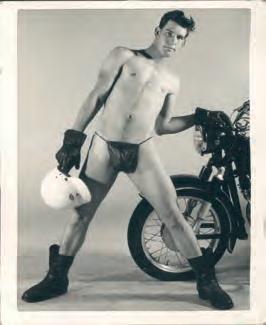
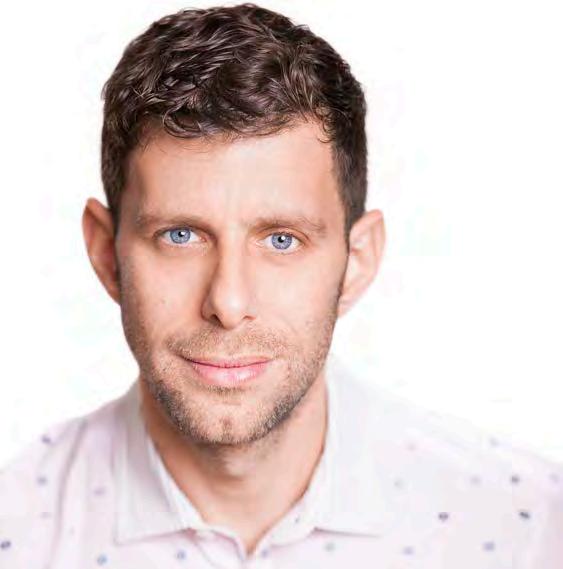
Author Yuval Sharon
being Wagner at the Metropolitan Opera, as museum-like an arts organization as exists in the wide world of opera. He’ll be directing the Met’s “Tristan und Isolde” this season and the forthcoming complete Wagner “Ring” over the following seasons. So much for the cliché that opera is expiring in the unyielding grip of the “elites.” No one, least of all Sharon, will be campaigning for the razing of big opera houses anytime soon.
Telling a new story Sharon locates the “problem,” such as it can be expressed in the singular, in the overweening power of narrative, the more so in a repertory in which storylines are famously implausible when not outright risible. His proposed remedy is to “use the narrative as needed and cast it off as quickly as possible to explore complexities and paradoxes as only opera can.”

The production with which he has been most tagged to date is the “La Bohème” he staged in 2022 for Detroit Opera, where he is artistic director. Called “the backwards Bohème” it presented the four acts in reverse order. Clever as that idea may seem pre-production, it’s hard to imagine any audience members who are not steeped in the old forwardmarching “Bohème” appreciating the novelty.
Sharon’s overriding concern that opera find its audience where that audience is or with education might be. Sharon proposes performing operas, particularly ones that have been composed expressly for it, in unusual locales or even and even non-art spaces, such as parking garages. He himself helmed a production that took the work of a half-dozen composers, assigned each to a limousine, and performed the result in syncopation and broadcast.
Although the word “Philosophy” in the title seems a bit insistent (and again suggests that elites are somehow involved), Sharon’s book is deeply thoughtful and proposes changes along the lines of clearly defined principles. Sharon knows of what he speaks. The illustrations throughout the book attest to the fact that his productions do not look like the previous ones.
How to solve a problem like Carmen

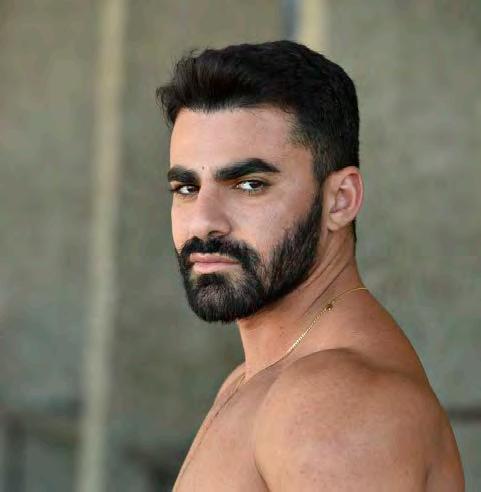



Sharon’s book is the kind that has indices, and I could not resist checking his thoughts about Georges Bizet’s “Carmen,” one of the repertory’s three undisputed warhorses and seat-fillers. Almost dutifully, Sharon comments on the ways “Carmen” productions in America all look pretty much alike.
“The title character will likely wear a frisky red dress, her matador lover will carry a red cape, and the incongruity of French music within an ‘authentic’ Spanish setting will be shrugged off… Production in this way becomes reduced to image, most often the original image connected to the first performances.”
When San Francisco Opera’s revival of out lesbian director Francesca Zambello’s “Carmen” hits the boards on November 13, audiences will have some new tools to compare those goings-on to actual “first performances.”
The enterprising Palazzetto Bru Zane has just released a video of a live performance of “Carmen” as it first hit the stage at Paris’ OpéraComique. It’s in the newish “revival tradition” that gave us the premiere of Stravinsky’s “The Rite of Spring” as it was first played and danced, and, closer to home, SF Opera’s production of Strauss’ “Der Rosenkavalier”
that mimicked the Vienna premiere as closely as possible.
There’s plenty of documentation of what can be learned about the 1875 “Carmen” premiere, but what literally paints the picture is the fully staged performance in sets, costumes, and musical conventions true to the histor-

ical record. What at first seems antique quickly becomes compelling as the singers find real characters to “imitate” in front of painted backdrop sets of uncommon beauty and interest. The Carmen, Deepa Johnny, is, by the standards of our day, restrained in her depiction of the title character not as a whore or femme fatale but as a woman of a social status higher than her counterparts led to her tragic death by the opera’s true crazy, Don José. Attention has turned to Bizet’s completed score as submitted, before the anachronisms and accretions insinuated themselves into it, and may have contributed to Bizet’s deathbed despair over what he thought to be opera’s onstage flop. For that version, look no farther than the René Jacobs-led, semi-staged “1874 Carmen” recorded live at Hamburg’s Elbphilharmonie. It abounds in riches today’s performers mine for improvements in the hidebound old girl.
With the exception of the José, the singers are first rate (Gaëlle Arquez’s vivid, spitfire Carmen is spared a trip to the low life) and mostly francophone, and Jacob’s conducting is idiomatic and not the least eccentric. It’s a “Carmen” to believe in if not wholly to be preferred. It’s just the best shot we’ve got at hearing the extraordinary opera Bizet had in mind.t
Yuval Sharon, ‘A New Philosophy of Opera,’ Liveright Publishing Corporation, a division of W. W. Norton & Company, 305 pp., $29.99. www.wwnorton.com
Georges Bizet, ‘Carmen,’ Opéra de Rouden, Romain Gilbert, director, Glen Glassberg, conductor, DVD, Palazzetto Bru Zane. www.bru-zane.com
San Francisco Opera performs ‘Carmen’ Nov. 13-Dec. 1 at the War Memorial Opera House, 301 Van Ness Ave. www.sfopera.com

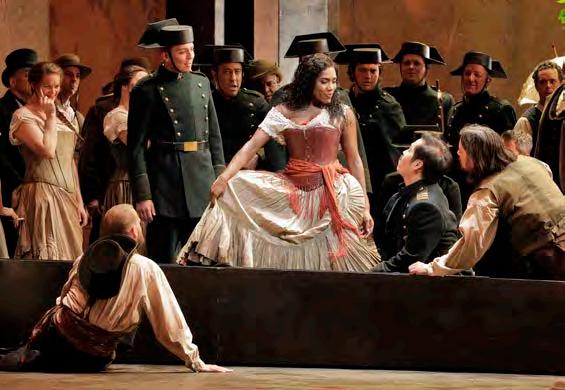
by Gregg Shapiro
Chinese American writer
Geoffrey Mak takes the personal essay to new, and sometimes unsettling, heights, in his book “Mean Boys: A Personal History” (Bloomsbury, 2024).
Described as a “memoir-in-essays,” Mak, the gay son of an evangelical minister, takes readers on his volatile and visceral personal journey, which includes the techno clubs of Berlin, various illicit substances, his sexual assault, and ultimately an examination of mass-murderer Elliot Rodger.
Gregg Shapiro: In the Author’s Note for your book “Mean Boys: A Personal History,” you said, “I wrote most of these essays for the Internet,” and that awareness of your readership extended to “what they wanted to hear, and what they were wearing.” Is that still your target audience or were you looking to expand it with the book?
Geoffrey Mak: If I could go back in time and inspire my twenty-sixyear-old self to keep writing, I would say, “Babe, in ten years, you’ll get everything you’ve ever dreamed of, just online-only.”
I still see the natural habitat of the personal essay; yet the internet has a tendency for fragmentation and bubbles. When I decided to write a book at a mainstream press, I thought a lot about how a book – unlike a painting – is a mass-produced object, which makes it a more democratic medium, almost humble.
I thought a lot about the opportunity to reach readers in Idaho or Oregon or Arkansas, and, in fact, I now get emails or Instagram DMs from readers in all those states. I wanted to explore universal themes that anyone can relate to, such as the wages of status in a high school cafeteria, or the process of forgiving one’s own father.
In “My Father, The Minister,” you address religion, not only as the son of a religious leader
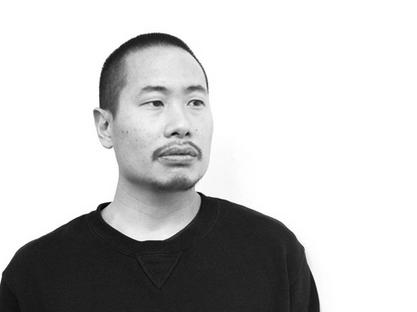
but also as a gay man. Religion continues to make headlines, whether it’s the role it’s playing in the 2024 election, the ongoing sexual abuse scandals in the various churches, or the war in Gaza. What role, if any, does religion play in your life at present?
I pay close attention to the religious life of this country. Two-thirds consider themselves religious. A lot of what I read disturbs me, nothing is surprising to me. I was heartened when, earlier this year, the United Methodist Church rescinded a ban on gay clergy. It was a rare victory because sexual difference remains to be the greatest divisive factor in American churches today.
The articulation of the queer, Christian subject might be my highest priority as a writer today. (Out
of all my essays, I consider “California Gothic” my greatest work.) I don’t participate in organized religion, but I still study the Bible and read queer theology, particularly the work of Marcella Althaus-Reid and Linn Tonstad, major influences of mine. I count theologians as some of my closest friends. I was actually just emailing with the writer Garth Greenwell about how 4th-century apophatic theology has parallels with queer theory today. I’m currently writing a novel about a trans-femme protagonist who finds her way to God. I’m quite serious. Sometimes, I dream that if this whole writer career doesn’t pan out, I might go to Divinity School.
What was involved in your decision to write about the aftermath of your sexual assault in the

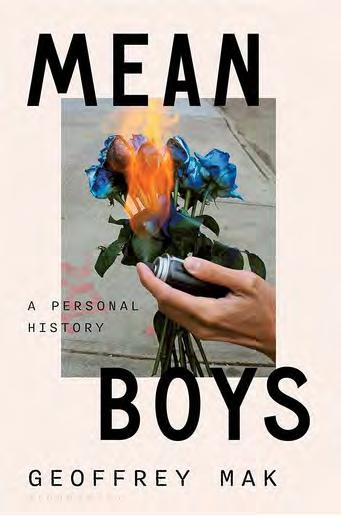
essay “In Arcadia Ego?”
Okay, so the first section of that essay originated as a Facebook post.
People reached out with caring words, although the writing partly explored my reaching a limit with caring words.
The material was so raw that I put it down for at least a few years.
After I had some distance from my own assault, I picked up the essay again and suddenly realized I was bored of my own pain. It wasn’t going to teach me anything, because suffering isn’t a university. I wanted to party, so I wrote about that.
Nothing about this was virtuous or wholesome or dignified. I got fucked up and screamed with my gays on the dance floor like sorority girls at a bachelorette party. In a previous era, you had a party to commemorate an occasion. My friends and I partied for no reason; the party justified itself. Life is like this, too. You never need a reason.
In the “Mean Boys” essay, you write about the ultimate mean boy – mass-murderer Elliot Rod-
ger. Did that essay begin as being about Rodger or did that come later?
This was one of the first essays I wrote where I didn’t outline it or know where it was ending up in advance. I started with an image – the Lacoste polo with the popped collar – and just kept writing. It’s meandering, because that’s how I wrote it, working through the innate turbulence of each paragraph until a door appeared into the next paragraph. I eventually found my way to Rodger. There was a time I thought I could write the essay without reading the manifesto, until I realized, c’mon, I was being chicken, I had to read the manifesto. Once I finished it, I knew I had to rewrite the entire essay.t
Read the full interview on www.ebar.com.
Geoffrey Mak’s ‘Mean Boys,’ Bloomsbury, $26 hardback, $20 ebook www.bloomsbury.com www.geoffreymak.com

